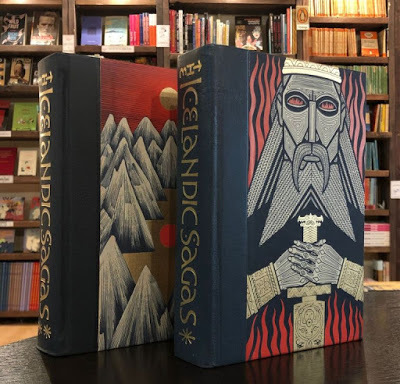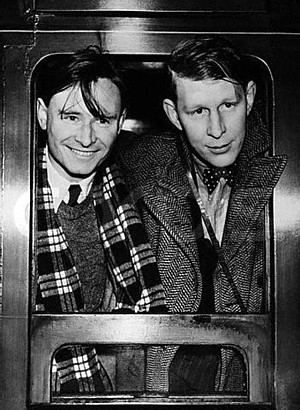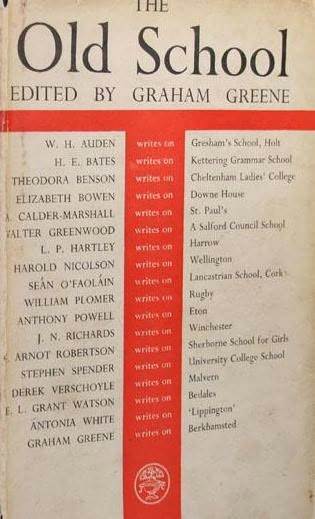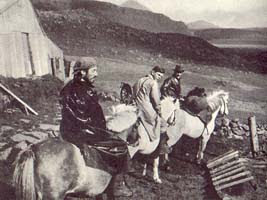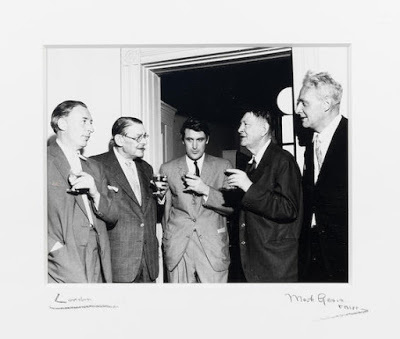Jack Ross's Blog, page 16
May 19, 2020
In Auden's Shadow: Cecil Day-Lewis

Cecil Day-Lewis (1904-1972)
There's a reason why the name may seem familiar to you. Yes, Cecil Day-Lewis was the father of triple Oscar-winning actor . If you look carefully, you can see the family resemblance:
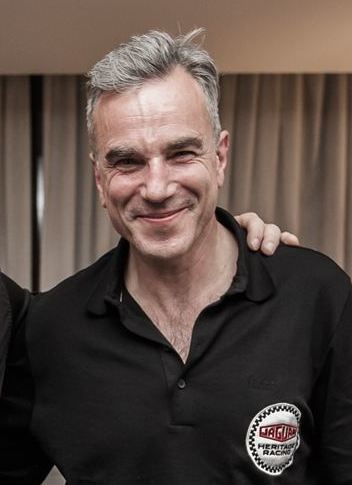
Daniel Day-Lewis (1957- )
It would be a shame if this fact were allowed to obscure Day-Lewis's own achievements, though, which were many and various - some have said a little too various:
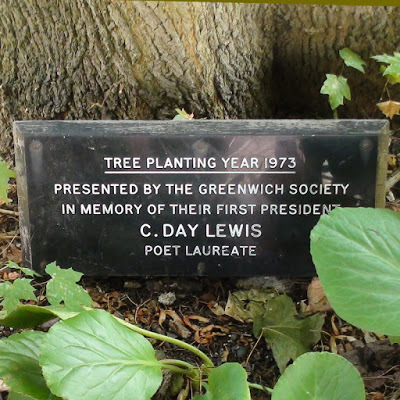
Greenwich Society: Memorial Tree (1973)
C. Day-Lewis (his preferred version of the name - though he often wrote it 'Day Lewis,' which has caused a certain confusion among critics and bibliographers) was the UK Poet Laureate from 1967, when John Masefield died, until his own death in 1972, when John Betjeman succeeded him.
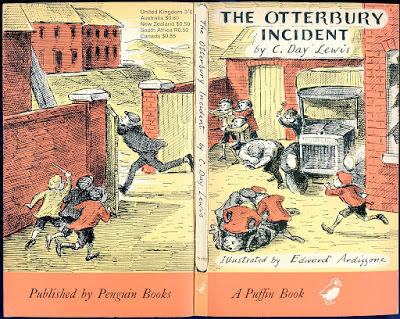
C. Day-Lewis: The Otterbury Incident (1948)
As well as writing numerous novels under his own name, including the children's classic The Otterbury Incident (1948), Day-Lewis was probably most celebrated for a series of 20-odd detective thrillers written under the pseudonym Nicholas Blake between 1935 and 1968. He claimed that he'd originally based his detective 'Nigel Strangeways' on certain character traits of W. H. Auden's, but the resemblance grew less and less marked over time.
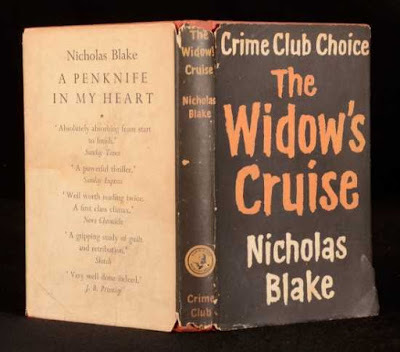
'Nicholas Blake': The Widow's Cruise (1959)
Like Louis MacNeice, Day-Lewis was a classical scholar, and took twenty years (1940-63) to complete one of the most celebrated modern translations of the complete works of Virgil.
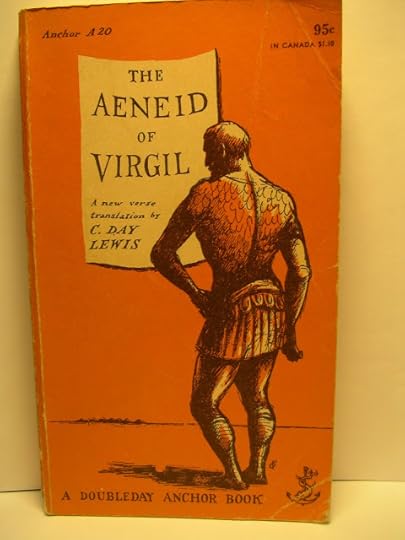
C. Day-Lewis, trans. The Aeneid of Virgil (1953)
Charles Causley's claim that he was 'the greatest lyric poet of the twentieth century' certainly remains a minority view but, though such early poems as his 1933 Magnetic Mountain sequence are probably still the most quoted, his reputation as a latter-day pastoralist ensures him a hearing even now.
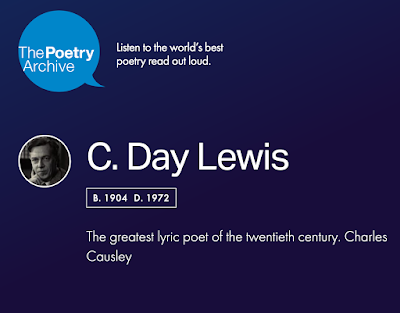
C. Day-Lewis: The Poetry Archive
And, speaking of early poems, here's one from his 1938 book Overtures to Death, published - like MacNeice's Autumn Journal - under the shadow of Munich and Chamberlain's promise of 'peace in our time':
Newsreel
Enter the dream-house, brothers and sisters, leaving
Your debts asleep, your history at the door:
This is the home for heroes, and this loving
Darkness a fur you can afford.
Fish in their tank electrically heated
Nose without envy the glass wall: for them
Clerk, spy, nurse, killer, prince, the great and the defeated,
Move in a mute day-dream.
Bathed in this common source, you gape incurious
At what your active hours have willed -
Sleep-walking on that silver wall, the furious
Sick shapes and pregnant fancies of your world.
There is the mayor opening the oyster season:
A society wedding: the autumn hats look swell:
An old crocks' race, and a politician
In fishing-waders to prove that all is well.
Oh, look at the warplanes! Screaming hysteric treble
In the low power-dive, like gannets they fall steep.
But what are they to trouble -
These silver shadows - to trouble your watery, womb-deep sleep?
See the big guns, rising, groping, erected
To plant death in your world's soft womb.
Fire-bud, smoke-blossom, iron seed projected -
Are these exotics? They will grow nearer home!
Grow nearer home - and out of the dream-house stumbling
One night into a strangling air and the flung
Rags of children and thunder of stone niagaras tumbling,
You'll know you slept too long.
The Auden influence is still apparent here: the somewhat heavy-handed politics combined with an undeniable lyric precision. This is the Macspaunday side of Day-Lewis: Marxist on the surface but Georgian underneath.
And here, a few years later, from Word Over All (1943), is a lyric which could easily find a place alongside A. E. Housman's 'Epitaph on an Army of Mercenaries':
Where are the War Poets? (1943)
They who in folly or mere greed
Enslaved religion, markets, laws,
Borrow our language now and bid
Us to speak up in freedom's cause.
It is the logic of our times,
No subject for immortal verse -
That we who lived by honest dreams
Defend the bad against the worse.
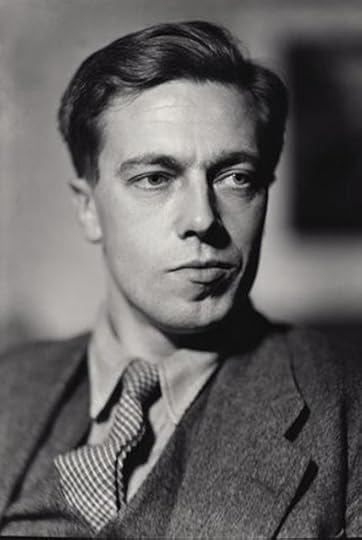
Cecil Day-Lewis
So who exactly was Cecil Day-Lewis? He's often referred to as an 'Anglo-Irish' poet, due to the fact that he was born, and lived till the age of 2, in Ballintubbert, Queen's County, Ireland. His clergyman father moved to London in 1906, and Day-Lewis was brought up there, albeit continuing to spend summer holidays with his relatives in County Wexford.
The slight schizophrenia of this shared English and Irish heritage continued throughout his life:
His father took the surname "Day-Lewis" as a combination of his own birth father's ("Day") and adoptive father's ("Lewis") surnames. In his autobiography The Buried Day (1960), Day-Lewis wrote, "As a writer I do not use the hyphen in my surname – a piece of inverted snobbery which has produced rather mixed results." - Wikipedia
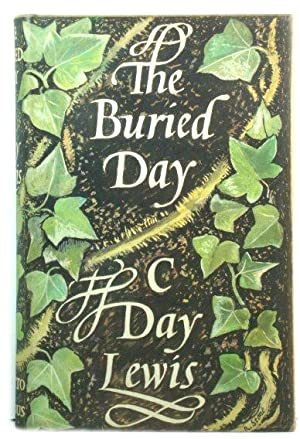
C. Day-Lewis: The Buried Day (1960)
Which brings me to the subject of autobiographies. I promised to comment on the biographies available for each of the writers in this series, but their own accounts of their lives undoubtedly also deserve some comment.
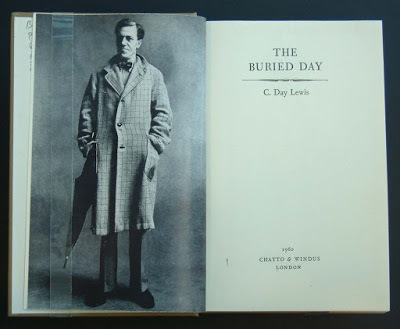
C. Day-Lewis: The Buried Day (1980)
As well as the Day-Lewis book mentioned above, Stephen Spender and Louis MacNeice both wrote autobiographies, World within World (1951) and The Strings are False (1941), respectively.
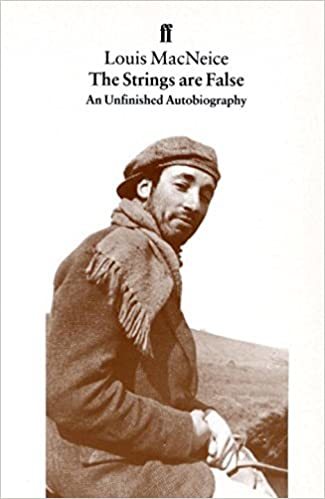
Louis MacNeice: The Strings are False (1941 / 1965)
I've already included some quotes from Spender's autobiography in my post on him. Louis MacNeice's autobiography was written early in the war, in 1941, but not published until after his death, in 1965. It was, I suppose, too nakedly revealing of his own complex relationship with 'Irishness' - and with his own work - to be released during his lifetime.
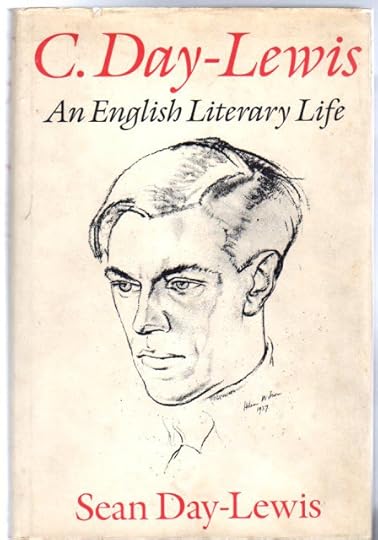
Sean Day-Lewis: C. Day-Lewis: An English Literary Life (1980)
When it comes to biographies, the situation is a little more complex.
The standard life was written by Sean, one of two sons by Day-Lewis's first marriage - to Constance Mary King. There's a certain (understandable) amount of family rancour visible there, given that his second wife, actress Jill Balcon, was a considerably more glamorous figure, and it was the children of this match who achieved fame.
Be that as it may, it's a competently written book, by a well-known journalist, and fleshes out the information in his father's own more impressionistic account.
The fact is, though, for all his fame and undoubted literary success, C. Day-Lewis is now a largely forgotten figure. There's a tradition of burying or otherwise commemorating Poet Laureates in Westminster Abbey. John Betjeman, his successor in the job, made it - Day-Lewis did not.
Unfortunately a more recent biography, by Peter Stanford - which I must confess I haven't yet read - has (according to reviewers, at any rate) failed to make a very strong case for revived interest in him.
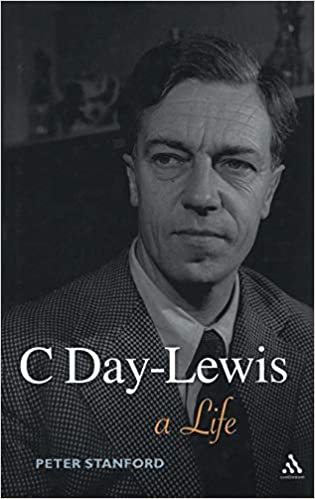
Peter Stanford: C. Day-Lewis: A Life (2007)
Perhaps his admirers can take comfort in a 1963 letter from W. H. Auden:
How delighted I was to find your later poetry so much finer than your earlier ... The critics, of course, think our lot stopped writing 25 years ago. How silly they are going to look presently.The most endearing anecdote I myself have heard about Day-Lewis concerns his last days, spent at Lemmons, the Hertfordshire home of Kingsley Amis and Elizabeth Jane Howard. Amis had to be forbidden from entering the sick room, as the Poet Laureate found his conversation so amusing that he would end up laughing uncontrollably, thus putting his health in jeopardy. Not such a bad way to go, perhaps, literally laughing yourself to death ...
HIs widow, Jill Balcon, continued to hope for a revival till she herself died in 2009:
I think he's still on the schools' curriculum, but he has come into some sort of obscurity that I cannot quite fathom.When she gave performances of his work, she noticed that most of the comments and letters she received concerned his poem 'Walking Away.'
A lot of people identify with it. It is about letting a child go. In this case it was his son, Sean, going off to school, but everybody who is a parent identifies with the moment when the children have to go. I wept when my son went to kindergarten for heaven's sake. He was only four, but I knew that forever and ever he would be going to school, to college, to marry and all the things they do.Perhaps, then. that's as good a place to end as any:
Walking AwayHis poetry is now available in full in the magnificent edition below. If there ever is a revival, at least it will be readily accessible to anyone who takes an interest in an old-fashioned nature poet: a stance which now seems more timely than ever.
It is eighteen years ago, almost to the day –
A sunny day with leaves just turning,
The touch-lines new-ruled – since I watched you play
Your first game of football, then, like a satellite
Wrenched from its orbit, go drifting away
Behind a scatter of boys. I can see
You walking away from me towards the school
With the pathos of a half-fledged thing set free
Into a wilderness, the gait of one
Who finds no path where the path should be.
That hesitant figure, eddying away
Like a winged seed loosened from its parent stem,
Has something I never quite grasp to convey
About nature’s give-and-take – the small, the scorching
Ordeals which fire one’s irresolute clay.
I have had worse partings, but none that so
Gnaws at my mind still. Perhaps it is roughly
Saying what God alone could perfectly show –
How selfhood begins with a walking away,
And love is proved in the letting go.
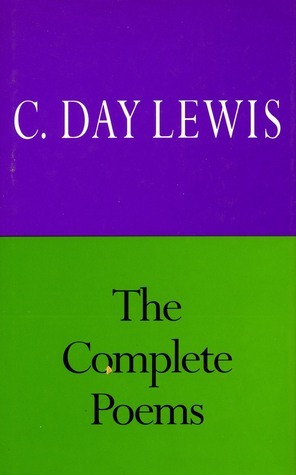
C. Day-Lewis: Complete Poems (1992)
•
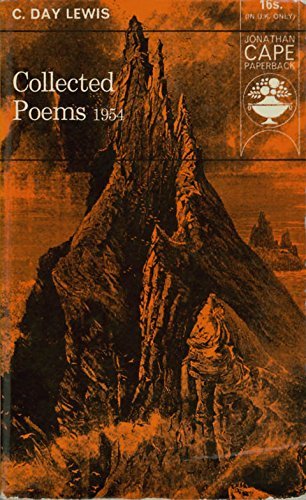
C. Day-Lewis: Collected Poems 1954 (1970)
Cecil Day-Lewis (1904-1972)
[titles I own are marked in bold]:
Poetry:
Beechen Vigil (1925)Country Comets (1928)Transitional Poem (1929)From Feathers to Iron (1931)The Magnetic Mountain (1933)Collected Poems 1929–1933 (1935)A Time to Dance (1935)Noah and the Waters (1936)Overtures to Death (1938)Word Over All (1943)Short is the Time (1945)Poems 1943-47 (1948)Poems: A Selection by the Author. 1951. The Penguin Poets. Harmondsworth: Penguin, 1957.An Italian Visit (1953)Christmas Eve. Illustrated by Edward Ardizzone. Ariel Poem. London: Faber, 1954.Collected Poems. 1954. London: Jonathan Cape, 1970.Pegasus (1957)The Gate (1962)The Room (1965)The Whispering Roots (1970)Posthumous Poems (1979)The Complete Poems. Stanford, CA: Stanford University Press, 1992.
Translation:
Virgil's Georgics (1940)Paul Valéry's Le Cimetière Marin (1946)The Aeneid. 1952. Appreciation by John Pollard. Original Illustrations by David Whitfield. Books That Have Changed Men’s Thinking. Geneva: Heron Books, 1969.Virgil's Eclogues (1963)The Eclogues, Georgics and Aeneid of Virgil. 1940, 1952, 1963. Oxford Paperbacks. London: Oxford University Press, 1966.
Non-fiction:
A Hope for Poetry (1934)Poetry for You: A Book for Boys and Girls on the Enjoyment of Poetry. 1944. Oxford: Basil Blackwell, 1957.The Poetic Image. 1947. Jonathan Cape Paperback JCP 25. London: Jonathan Cape Ltd., 1965.The Buried Day (1960)
Fiction:
Dick Willoughby (1933)The Friendly Tree (1936)Starting Point (1937)Child of Misfortune (1939)The Otterbury Incident. Illustrated by Edward Ardizzone. 1948. Puffin Books. Harmondsworth: Penguin, 1965.
[as 'Nicholas Blake]:
A Question of Proof (1935)Thou Shell of Death (1936)There's Trouble Brewing (1937)The Beast Must Die (1938)The Smiler with the Knife (1939)Malice in Wonderland (1940)The Case of the Abominable Snowman (1941)Minute for Murder (1947)Head of a Traveller (1949)The Dreadful Hollow (1953)The Whisper in the Gloom (1954)A Tangled Web (1956)End of Chapter (1957)A Penknife in My Heart (1958)The Widow's Cruise (1959)The Worm of Death (1961)The Deadly Joker (1963)The Sad Variety (1964)The Morning after Death (1966)The Private Wound (1968)
Edited:
[with L. A. G. Strong] A New Anthology of Modern Verse 1920–1940 (1941)Robert Frost. Selected Poems. Introduction by C. Day Lewis. The Penguin Poets. 1955. Harmondsworth: Penguin, 1962.[with John Lehmann] The Chatto Book of Modern Poetry 1915–1955 (1956)The Collected Poems of Wilfred Owen. 1963. With a Memoir by Edmund Blunden. A Chatto & Windus Paperback CWP 18. London: Chatto & Windus Ltd., 1977.
Secondary:
Sean Day-Lewis. C. Day-Lewis: An English Literary Life. 1980. Unwin Paperbacks. London: George Allen & Unwin Ltd., 1982.
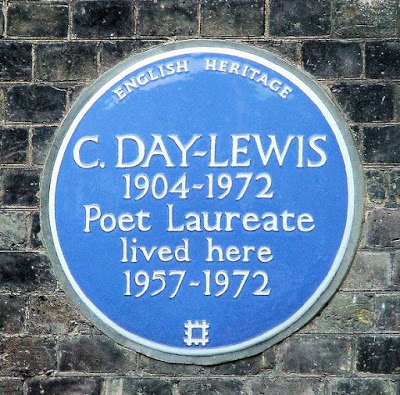
Cecil Day-Lewis (1904-1972)
Published on May 19, 2020 13:33
April 26, 2020
In Auden's Shadow: Louis MacNeice
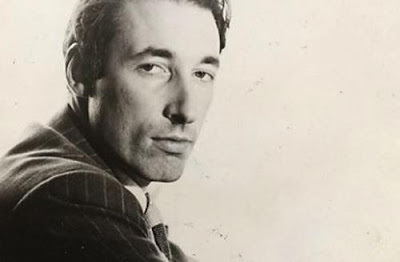
Louis MacNeice (1907-1963)
Like other members of the Auden group, Louis MacNeice's defining hour came in the early days of the Second World War. It's then that he wrote much of his best poetry. It's probably no accident that this happened after Auden had left the scene and MacNeice was accordingly free to reforge his identity both as an Ulsterman and as an Irish poet.
He never had that much in common anyway with the other members of the 'gang' (as Spender called it). He didn't have a defined position like 'the novelist' (Christopher Isherwood), 'the musician' (Benjamin Britten), 'the painter' (William Coldstream) - not to mention 'the other poet' (Stephen Spender).
For a start, he was heterosexual, gregarious and a bon-viveur - not really characteristics of any of the others. Also, he got first class honours in Classics at Oxford (unlike Auden's third in English), so was therefore able to obtain a lecturing post at the University of Birmingham rather than the hand-to-mouth schoolteaching jobs available to the rest of them.
Look in your heart, you will find a County Sligowrote MacNeice in one of his wartime poems. He was born in Belfast, and his father John MacNeice would eventually become a Bishop in the (protestant) Church of Ireland. His family 'claimed descent from the kin of the early Irish saint MacNissi.' It's safe to say that all this history, personal and collective, weighed increasingly heavily on him as time went by.
... a litter of chronicles and bones

Ben Bulben, County Sligo
from "Five War Poems":'Neutrality,' indeed - it sounds like such a passive thing. And yet, during the war, with neutral Eire standing like a roadblock between Britain and the Atlantic, it seemed anything but.
III: Neutrality
The neutral island facing the Atlantic,
The neutral island in the heart of man,
Are bitterly soft reminders of the beginnings
before the end began.
Look into your heart, you will find a County Sligo,
bevel hill with for navel a cairn of stones,
You will find the shadow and sheen of a moleskin mountain
And a litter of chronicles and bones.
Look into your heart, you will find fermenting rivers,
Intricacies of gloom and glint,
You will find such ducats of dream and great doubloons of ceremony
As nobody to-day would mint.
But then look eastwards from your heart, there bulks
A continent, close, dark, as archetypal sin,
While to the west off your own shores the mackerel
Are fat with the flesh of your kin.
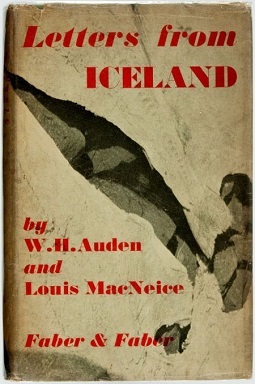
W. H. Auden & Louis MacNeice: Letters from Iceland (1937)
It apparently came as a great surprise to MacNeice when Auden invited him to come along on a trip to Iceland in 1936. The two were not particularly close, and had never travelled or worked together before. Perhaps that was what Auden was looking for, too - a change of company as well as a change of scene.
The collaborative book that resulted from this journey, Letters from Iceland (1937), remains one of the gems of 1930s travel literature. I've written about it more extensively in the Study Guide for my Massey Travel Writing course so, for simplicity's sake, I thought I might include a few extracts from those notes here:
Magnus Magnusson, ed.: The Icelandic Sagas (1999-2002)
“Für uns, Island ist das Land”
– An unknown Nazi
In the section of their book entitled “Sheaves from Sagaland,” where W. H. Auden and his travelling companion Louis MacNeice have compiled an “Anthology of Icelandic Travel” for their friend, fellow-poet John Betjeman, this discordant little statement stands out amongst all the camp clowning.
“For us, Iceland is the land” – the source and origin of “German-ness” is what this “unknown Nazi” means to say here. The year is 1936, and war-clouds are gathering over Europe once again. The Spanish Civil War is in full swing, with leftist poets and intellectuals travelling from all over the world to help the fledgling Spanish Republic:
They clung like burrs to the long expresses that lurch
Through the unjust lands, through the night, through the alpine tunnel;
They floated over the oceans;
They walked the passes: they came to present their lives.
Auden was one of the most politically conscious poets of his generation, and in the poem “Spain 1937,” he attempted to sum up what that war meant to young people such as himself, born too late to have fought in the First World War, but now faced with the threat of Round Two in this (temporarily suspended) universal bloodletting:
To-morrow for the young the poets exploding like bombs,
The walks by the lake, the winter of perfect communion;
To-morrow the bicycle races
Through the suburbs on summer evenings: but today the struggle.
...
The stars are dead; the animals will not look:
We are left alone with our day, and the time is short and
History to the defeated
May say Alas but cannot help or pardon.
Auden later came to repudiate what he saw as the false dichotomies in this poem, but at the time it perfectly expressed the sense of urgency so many saw in this bitter conflict between Progressive and Reactionary Spain. For Nazi Germany and Fascist Italy, by contrast, it was a chance to try out some of their new weapons and tactics, and generally advance the training of their armed forces before the real war broke out in earnest.
For Communist Russia, too, it was a chance to spread its influence further among the Western Democracies. It was, then, a time of hope and disillusionment. In the end, though, the Spanish Republic lost its struggle – largely due to the appeasing, “wait-and-see” policies of Britain and France.
Christopher Isherwood & W. H. Auden leaving for China (1938)
In the midst of all this, Auden decided to go to Iceland. Why? Well, for one thing, because it was as far away as you could get from Europe while still maintaining some kind of foothold in European culture. Also, as an aficionado of the Icelandic Sagas, it was a true pilgrimage for him: to the birthplace of vernacular European literature, long before Chaucer or Dante or Cervantes or any of the founders of the great European literary traditions.
“Sheaves from Sagaland.” Auden’s friend (and occasional lover) Christopher Isherwood, who accompanied him on his trip to China – scene of the other great war before the Second World War – once remarked to him that the doomladen characters in the Old Norse Sagas reminded him of their schooldays.
The hint underlying this statement dominates most of Auden’s early work: the spies, aviators, engineers and other characters in his early poems and plays all speak in a kind of clipped, Germanic shorthand: the idiom of the Sagas and the Anglo-Saxon bards.
Graham Greene, ed.: The Old School (1934)
“The best reason I have for opposing Fascism is that at school I lived in a Fascist state” he said in his contribution to an anthology entitled The Old School, edited by Graham Greene. For Auden, the Honour system that dominated the minor Public School he attended – the oath that he and all the other children were forced to take to inform on any of their companions they saw doing anything “beastly” or dishonourable – was the essence of Fascism.
Auden was homosexual, and so this did entail, in his case, literally living a lie – a life of deception and false façades, since nothing in his most basic instincts was regarded as “natural” by the potential spies who surrounded him (despite the obvious prevalence of homosexual attitudes and activities in most large British Public Schools).
One answer to this official hypocrisy and set of double-standards was politics. Auden was a committed Communist by the early thirties, like many of his contemporaries, though the brutally repressive activities of the Comintern in the Spanish War disillusioned him for good with the Soviet Union. After the War, in fact, he returned to the Church, and attempted to construct a revised code of morality which could explain just why he felt the Nazis were so very much more wrong than their opponents – despite all the obvious failings of liberal democracy.
W. H. Auden: Louis MacNeice on horseback (1936)
Is there much of a hint of all this angst and mental anguish in Letters from Iceland? If so, it’s very well concealed. Louis MacNeice had his own troubles and tribulations to deal with: brought up as an Ulster Protestant in Northern Ireland, his own childhood had been overshadowed by hatred and war. Nor (unlike the Eire poets) could he retreat into any pastoral visions of “Mother Ireland” to justify his alcoholism and compulsive womanizing. They made a pretty pair!
Which is one reason, I would argue, why their book still reads so entertainingly, after all this time. The immediate shadows of the pre-war may have been temporarily in suspension for them in a place as remote from the front lines as Iceland, but the sense of escape, of the need to pause and think things through, is almost palpable in this strange set of “letters home” in verse and prose, bound up as a book.
Auden’s tongue-in-cheek account of a pony-tour through the Icelandic countryside, recasting himself and MacNeice as two School Mistresses with a class of school girls is a thinly disguised version of the actual trip the two poets took with a group of young Public School boys. The silliness of the whole thing is undeniable – but also entrancingly funny, and Wystan’s constant sniping at Louis sounds far more plausible in this new persona as a spinster teacher jealous of her younger, prettier rival.
It may be one of the oddest, most disjointed travel-books ever written, but there’s actually little that’s arbitrary in what the two authors were trying to do with it:Private faces in public placesThis epigraph to Auden’s 1932 book The Orators encapsulates his view of the world at that time. It was the refusal to be silly and private which had led so many people to death and destruction throughout that “low, dishonest decade”, the 1930s.
Are wiser and nicer
Than public faces in private places
Mark Gerson: The Faber Poets (1961)
[l to r: Louis MacNeice, T. S. Eliot, Ted Hughes, W. H. Auden & Stephen Spender]
Well, as you can see, I'm every bit as bad as the next person when it comes to keeping the whole discussion firmly under Auden's shadow - which is where we came in in the first place ... MacNeice scarcely rates a mention.
But, just as Auden went off to China shortly afterwards, to build on his new-found vogue as a travel writer, so MacNeice took the opportunity to head straight from Iceland to the Gaelic-speaking Hebrides.
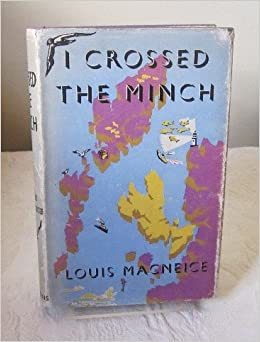
Louis MacNeice: I Crossed the Minch (1938)
I Crossed the Minch is as much of a cross-genre product as Letters from Iceland, published the year before. This time MacNeice's collaborator was Nancy Sharp, the estranged wife of Auden's friend William Coldstream. Here's a poem from the book (one of his most famous, actually), which shows the Auden-influence still strong on him:
Bagpipe Music
It's no go the merrygoround, it's no go the rickshaw,
All we want is a limousine and a ticket for the peepshow.
Their knickers are made of crepe-de-chine, their shoes are made of python,
Their halls are lined with tiger rugs and their walls with head of bison.
John MacDonald found a corpse, put it under the sofa,
Waited till it came to life and hit it with a poker,
Sold its eyes for souvenirs, sold its blood for whiskey,
Kept its bones for dumbbells to use when he was fifty.
It's no go the Yogi-man, it's no go Blavatsky,
All we want is a bank balance and a bit of skirt in a taxi.
Annie MacDougall went to milk, caught her foot in the heather,
Woke to hear a dance record playing of Old Vienna.
It's no go your maidenheads, it's no go your culture,
All we want is a Dunlop tire and the devil mend the puncture.
The Laird o' Phelps spent Hogmanay declaring he was sober,
Counted his feet to prove the fact and found he had one foot over.
Mrs. Carmichael had her fifth, looked at the job with repulsion,
Said to the midwife "Take it away; I'm through with overproduction."
It's no go the gossip column, it's no go the Ceilidh,
All we want is a mother's help and a sugar-stick for the baby.
Willie Murray cut his thumb, couldn't count the damage,
Took the hide of an Ayrshire cow and used it for a bandage.
His brother caught three hundred cran when the seas were lavish,
Threw the bleeders back in the sea and went upon the parish.
It's no go the Herring Board, it's no go the Bible,
All we want is a packet of fags when our hands are idle.
It's no go the picture palace, it's no go the stadium,
It's no go the country cot with a pot of pink geraniums,
It's no go the Government grants, it's no go the elections,
Sit on your arse for fifty years and hang your hat on a pension.
It's no go my honey love, it's no go my poppet;
Work your hands from day to day, the winds will blow the profit.
The glass is falling hour by hour, the glass will fall forever,
But if you break the bloody glass you won't hold up the weather.
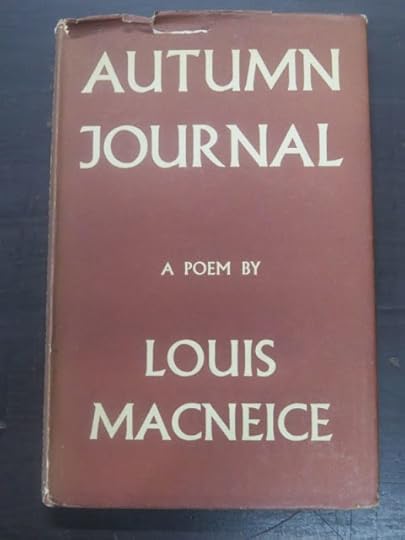
Louis MacNeice: Autumn Journal (1939)
Nancy illustrated the book, and their short affair formed part of the inspiration for (arguably) MacNeice's greatest poetic achievement, Autumn Journal (1939).
Autumn Journal chronicles the uncertain time before the outbreak of war, in the form of a long autobiographical argument with himself about the true nature of poetry - as well as its place in a world obsessed with simplistic propaganda and facile heroism. Much criticised (but widely read) at the time, it has grown to be one of the few essential poems of the 'phoney war' period.
After a brief stint at Cornell University in America, MacNeice returned to London in 1940, and joined the BBC in 1941. This decision would set the tone for most of the rest of his writing life. On the positive side, it led to the composition of a series of radio plays and programmes some of which (plays such as The Dark Tower, for instance) have stood the test of time.
On the negative side, contact with habitués of the BBC recording studios such as Dylan Thomas facilitated his gradual descent into alcoholism, and the demands of the job itself made it hard to maintain the level of creativity he had enjoyed in the 1930s.

Carrickfergus, County Antrim
As a poet, I think it's fair to say that it's taken a long time for MacNeice to come into focus. It seems now to be the various conflicted identities surrounding his Irishness which mean most to contemporary readers. Take, for example, a poem such as the following - written in the same year, 1937, as 'Bagpipe Music':
CarrickfergusIt's hard to say what precisely this is supposed to add up to or 'mean' - but it's almost unbearably evocative and elegiac about an irrecoverably lost past. Not that he's sparing in his account of the alienation that surrounded him, born in the heart of the Protestant Ascendancy, and thus 'Banned for ever from the candles of the Irish poor.'
I was born in Belfast between the mountain and the gantries
To the hooting of lost sirens and the clang of trams:
Thence to Smoky Carrick in County Antrim
Where the bottle-neck harbour collects the mud which jams
The little boats beneath the Norman castle,
The pier shining with lumps of crystal salt;
The Scotch Quarter was a line of residential houses
But the Irish Quarter was a slum for the blind and halt.
The brook ran yellow from the factory stinking of chlorine,
The yarn-milled called its funeral cry at noon;
Our lights looked over the Lough to the lights of Bangor
Under the peacock aura of a drowning moon.
The Norman walled this town against the country
To stop his ears to the yelping of his slave
And built a church in the form of a cross but denoting
The List of Christ on the cross, in the angle of the nave.
I was the rector's son, born to the Anglican order,
Banned for ever from the candles of the Irish poor;
The Chichesters knelt in marble at the end of a transept
With ruffs about their necks, their portion sure.
The war came and a huge camp of soldiers
Grew from the ground in sight of our house with long
Dummies hanging from gibbets for bayonet practice
And the sentry's challenge echoing all day long.
I went to school in Dorset, the world of parents
Contracted into a puppet world of sons
Far from the mill girls, the smell of porter, the salt mines
And the soldiers with their guns.
The strength of a poem like this lies, I would argue, in its refusal to editorialise, to make an act of contrition for the mere fact of his birth. Carrickfergus is real, it is and will remain part of him - in a deeper sense, though, there are aspects of his birthplace which must remain forever hidden away. I think this rings a bell for all of us born as the beneficiaries of colonialism across the world - here in New Zealand, for instance.
Then there are the other, 'purer' poems, which simply delight in the music of words and the texture of existence. Poems such as 'Snow' (1935):
The room was suddenly rich and the great bay-window wasThere is, to be sure, a hint of Wallace Stevens' 1923 poem 'Snow Man' in this:
Spawning snow and pink roses against it
Soundlessly collateral and incompatible:
World is suddener than we fancy it.
World is crazier and more of it than we think,
Incorrigibly plural. I peel and portion
A tangerine and spit the pips and feel
The drunkenness of things being various.
And the fire flames with a bubbling sound for world
Is more spiteful and gay than one supposes –
On the tongue on the eyes on the ears in the palms of your hands –
There is more than glass between the snow and the huge roses.
One must have a mind of winterbut there's something, too, about that exuberant middle stanza of MacNeice's poem which is incorrigibly his, 'incorrigibly plural,' - 'The drunkenness of things being various.'
To regard the frost and the boughs
Of the pine-trees crusted with snow
At his best, Louis MacNeice was a wonderful poet - the major thing that happened in Irish poetry between Yeats and Heaney, as no less a luminary than Paul Muldoon has argued - and he was at his best far more of the time than he's ever been given credit for.
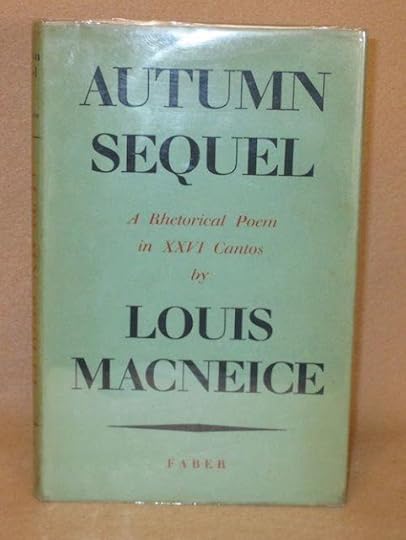
Louis MacNeice: Autumn Sequel (1954)
•
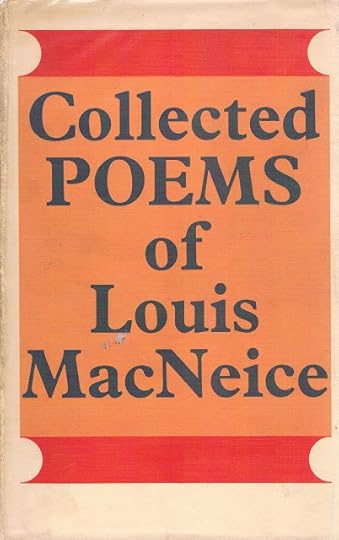
Louis MacNeice: Collected Poems (1966)
Frederick Louis MacNiece (1907-1963)
[titles I own are marked in bold]:
Poetry:
Blind Fireworks (1929)Poems. 1935. London: Faber, 1944.The Earth Compels (1938)Autumn Journal (1939)The Last Ditch (1940)Selected Poems. 1940. Sesame Books. London: Faber, 1947.Plant and Phantom (1941)Springboard (1944)Prayer Before Birth (1944)Holes in the Sky (1948)Collected Poems, 1925–1948 (1949)Ten Burnt Offerings (1952)Autumn Sequel (1954)Visitations (1957)Solstices (1961)The Burning Perch (1963)Star-gazer (1963)Selected Poems, ed. W. H. Auden (1964)Collected Poems. Ed. E. R. Dodds. 1966. London: Faber, 1979.Selected Poems, ed. Michael Longley (1988)Collected Poems, ed. Peter McDonald (2007)
Plays:
Out of the Picture: A Play in Two Acts. 1937. London: Faber, 1937.Christopher Columbus (1944)He Had a Date (1944)The Dark Tower and other radio scripts (1947)The Dark Tower. 1947. Faber Paper Covered Editions. London: Faber, 1964.The Mad Islands and The Administrator (1964)Persons from Porlock and other plays for radio (1969)One for the Grave: a modern morality play (1968)Selected Plays of Louis MacNeice, ed. Alan Heuser & Peter McDonald (1993)
Translation:
The Agamemnon of Aeschylus. Trans. Louis MacNeice. 1936. London: Faber, 1967.Goethe’s Faust: Parts I and II. An Abridged Version. Trans. Louis MacNeice. & E. L. Stahl. 1951. Faber Paper Covered Editions. London: Faber, 1965.
Fiction:
[as 'Louis Malone'] Roundabout Way (1932)The Sixpence That Rolled Away (1956)
Non-fiction:
[with W. H. Auden] Letters from Iceland. London: Faber, 1937.I Crossed the Minch (1938)Modern Poetry: A Personal Essay (1938)Zoo (1938)The Poetry of W. B. Yeats. 1941. Foreword by Richard Ellmann. Faber Paper Covered Editions. London: Faber, 1967.Meet the US Army (1943)Astrology (1964)Varieties of Parable (1965)The Strings are False: An Unfinished Autobiography. Ed. E. R. Dodds. London: Faber, 1965.Selected Prose of Louis MacNeice, ed. Alan Heuser (1990)
Letters:
Letters of Louis MacNeice ed. Jonathan Allison (2010)
Secondary:
Barbara Coulton. Louis MacNeice in the BBC. London: Faber, 1980.Robyn Marsack. The Cave of Making: The Poetry of Louis MacNeice. Oxford: Clarendon Press, 1982.Jon Stallworthy. Louis MacNiece. 1995. London: Faber, 1996.
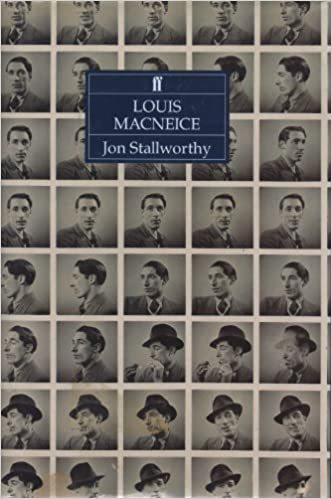
Jon Stallworthy: Louis MacNeice: A Biography (1995)
A very important point when it comes to assessing this group of poets from this distance in time is the quality of the various biographies available for each of them.
MacNeice has been particularly fortunate in this regard. Jon Stallworthy's book about him is honest and balanced - and (more importantly) beautifully composed. If you weren't interested in his work going in, this biography would probably be sufficient to convert you. It includes such useful features as a detailed breakdown of the pseudonyms used in Autumn Journal, together with the names of their supposed originals. In short, it's a model of the biographer's art.
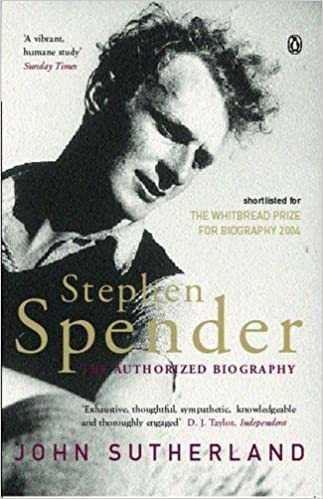
John Sutherland: Stephen Spender: The Authorized Biography (2004)
John Sutherland's 2004 biography of Stephen Spender is also excellent, and contains most of what one would want to know about him.
Auden has fared less well, unfortunately. There are a number of biographies, all of them useful, but none definitive. Mendelson's critical biography, which originally appeared in two volumes as Early Auden (1981) and Later Auden (1986), is by far the most comprehensive, but for everyday detail it still needs to be supplemented by Humphrey Carpenter's W. H. Auden.
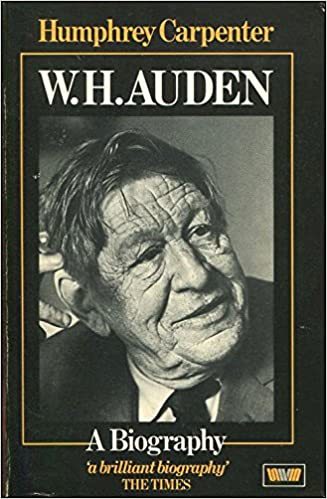
Humphrey Carpenter: W. H. Auden: A Biography (1981)
I'll be making more notes as I go along on each of our protagonists' luck in this regard.
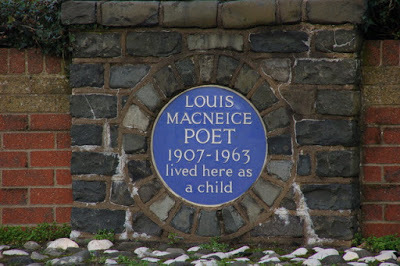
Carrickfergus, County Antrim
Published on April 26, 2020 16:27
April 18, 2020
In Auden's Shadow: Stephen Spender
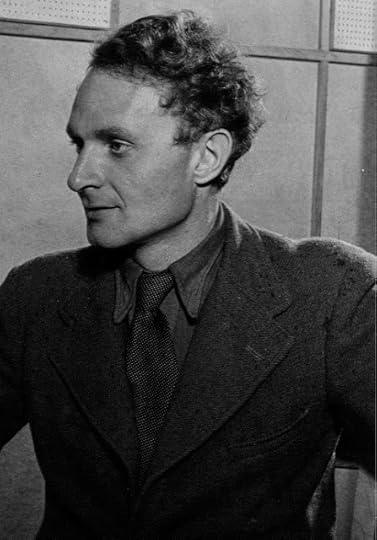
Stephen Spender (1909-1995)
At one of their first meetings, Auden asked Spender how often he wrote poetry.
Without reflecting, I replied that I wrote about four poems a day. He was astonished and exclaimed: 'What energy!' I asked him how often he wrote a poem. He replied: 'I write about one in three weeks.' After this I started writing only one poem in three weeks.- Stephen Spender, World within World (1951): p.44.That gives you some sense of the character of their relationship. It was a long time before Spender managed to climb out from under the older poet's shadow, and one might even argue that he never did.
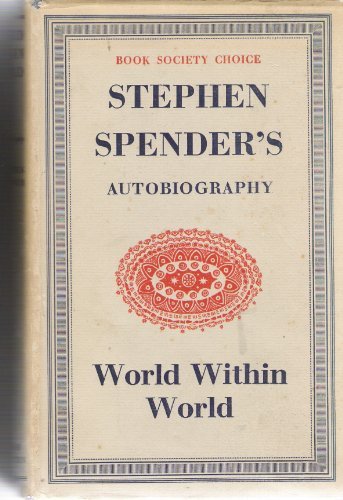
Stephen Spender: World within World (1951)
His story is a complex one, however. There were times when his poetry was almost as highly regarded as Auden's, and anthology pieces such as 'My Parents' continue to resonate to this day:
My parents kept me from children who were roughSome of the others, though - 'The Truly Great,' for instance - however highly regarded they may have been at the time, sound rather embarrassing now:
Who threw words like stones and wore torn clothes
Their thighs showed through rags they ran in the street
And climbed cliffs and stripped by the country streams.
I feared more than tigers their muscles like iron
Their jerking hands and their knees tight on my arms
I feared the salt coarse pointing of those boys
Who copied my lisp behind me on the road.
They were lithe they sprang out behind hedges
Like dogs to bark at my world. They threw mud
While I looked the other way, pretending to smile.
I longed to forgive them but they never smiled.
I think continually of those who were truly great.They 'left the vivid air signed with their honour,' eh? No wonder they nicknamed him 'Young Shelley.'
Who, from the womb, remembered the soul’s history
Through corridors of light, where the hours are suns,
Endless and singing. Whose lovely ambition
Was that their lips, still touched with fire,
Should tell of the Spirit, clothed from head to foot in song.
And who hoarded from the Spring branches
The desires falling across their bodies like blossoms.
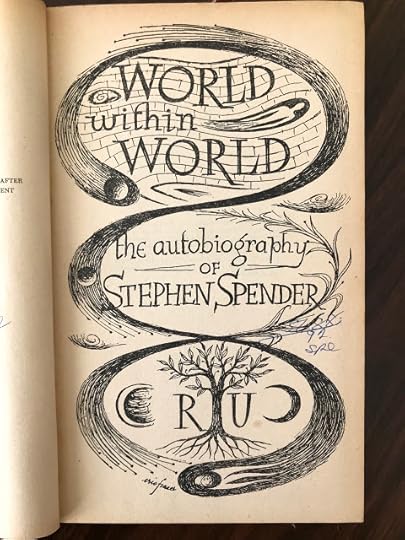
Stephen Spender: World within World (1951)
World within World, his autobiography, published in his early forties - though he lived to the age of 86 he never supplemented or continued it - remains, however, a strange, subtle piece of writing.
He records there how, after a brief indoctrination by Auden in the characteristics and requirements of modern poetry ('The poet is far more like Mr. Everyman than Kelley and Sheats. He cuts his hair short, wears spats, a bowler hat, and a pin-stripe city suit. He goes to the job in the bank by the suburban train' - World within World, p.53), Spender reluctantly concluded that there was no place for him there.
After I had known him six weeks he must have approved of as many of my lines. Therefore it was rather surprising to discover that he considered me a member of 'the Gang'. Once I told him I wondered whether I ought to write prose, and he answered: 'You must write nothing but poetry, we do not want to lose you for poetry.' This remark produced in me a choking moment of hope mingled with despair, in which I cried: 'But do you really think I am any good?' 'Of course,' he replied frigidly. 'But why?' 'Because you are so infinitely capable of being humiliated. Art is born of humiliation,' he added in his icy voice - and left me wondering when he could feel humiliated.- World within World: pp.44-45.It wasn't that Spender was insensitive to embarrassment. On the contrary, it's hard to imagine a man with a thinner skin, more naturally vain and self-regarding. It's just that he was willing to put all that on the record: to write down the whole of himself, silliness and all. Not even Auden could do that.
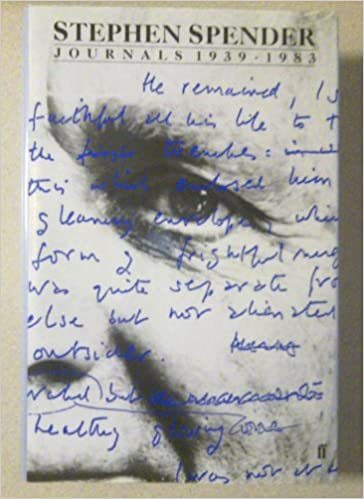
Stephen Spender: Journals, 1939-1983 (1985)
I never actually met the man, but I did ask him to sign his latest book - Journals 1939-1983 - for me on one occasion. It was at the Edinburgh Book Festival (one of the many sideshows to the Official Festival which take place in that city every year). I see from the ticket stub, which I still have, that it was in mid-1989, so he must have just turned 80.
He gave a brief poetry reading, then answered a few questions. The one I remember came from a woman with an exceptionally unctuous voice who asked why one particular early poem had been left out of the latest, 1985, edition of his Collected Poems, since it was (she claimed) such a wonderful piece of work.
'Oh, I don't know,' he replied, 'It just seemed a bit sentimental, I suppose.' The put-down of the woman and her level of taste was complete, and yet it seemed (almost) entirely offhand - as if it had never occurred to him that it might hurt her feelings.
She asked. He answered, as accurately as he could. That was that.
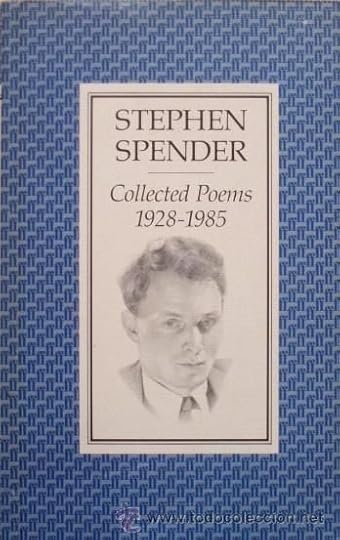
Stephen Spender: Collected Poems 1929-1985 (1985)
Then the line formed.
It turned out that almost nobody was there to hear one more reading by the eminent poet. On the contrary, they were all there to get him to sign their copies of his books. The line was snaking all the way round the tent before I could get anywhere near it, and I could dimly see, off in the distance, the old grey head rising and falling as he scribbled industriously in each tome.
I'd provided myself with his latest, in token of good faith - at least some small royalties might be going to him from the sale - but others were not so scrupulous. The man in front of me, for instance, presumably some kind of dealer, had an armful of Spenderiana from all periods of his career. And when, after half an hour or so, the line eventually got to us, the great man duly signed them, one by one.
I felt bad about adding one more tiny jot of effort to his day, but by then I'd waited so long that I simply couldn't face failure. I handed him my one book; he scribbled in it; I said 'thank you' in as unassuming a manner as possible; and that was all. There was no meeting of the eyes, no miraculous conveyance of sympathy from aspiring poet to master ... just an old man plying his pen as he'd clearly had to do so many times before.
After that, I think, he was dragged off to safety by one of his children, and the baying masses were forced to subside. I've always felt a little ashamed of the incident, as if I were guilty of contributing a little to his discomfiture that day, but perhaps it were 'to consider too curiously, to consider so.'
I'd felt terribly anxious to see the grand old man, last survivor of all those thirties poets I idolised, but the occasion seemed tainted somehow by the thronging of all those importunate bookhounds.
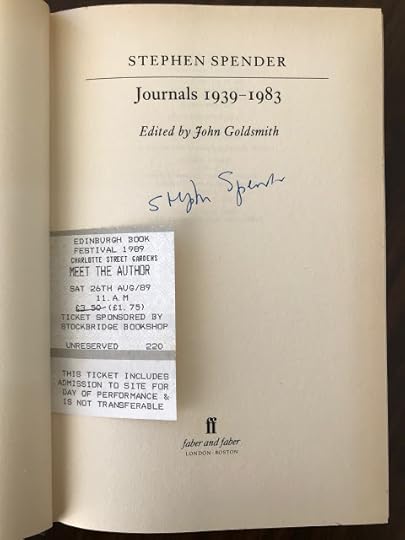
Stephen Spender: Journals, 1939-1983 (signed)
The defining moment for the Auden group undoubtedly came at the very end of the thirties, that 'low, dishonest decade,' as he called it in his classic poem '.' Whatever his original intentions for the poem, it became a kind of 'Goodbye to All That' for both him and his friend Isherwood. Instead of returning to soon-to-be-war-beleaguered Britain, they decided to stay in the United States.
The other members of the group remained in the UK. All took part in the war effort in their various ways - not as combatants, but as active participants on the Home Front, as well as acting as war propagandists at various points. The Spanish war had united and - some would say - defined them as a group, however various their responses to it turn out, in retrospect, to have been.
It was the Second World War that divided them, turned Spender into a kind of suave literary politician, Day Lewis into a Hardy-esque pastoralist, MacNeice into a drunken BBC producer, and linked them definitively to the Old World rather than the New.
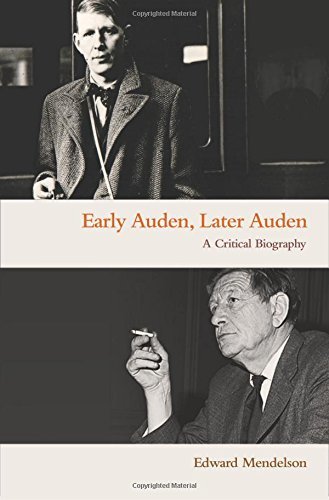
Edward Mendelson: Early Auden, Later Auden: A Critical Biography (2017)
Whether Auden could be said to have ever written as well in his newly adopted country as he did in the old is debatable. He certainly wrote differently, though. His explorations of inner worlds and the inner life may have been less lyrically effective than the gnarled, gnomic verse he composed in the thirties, but they were certainly no less ambitious in scope.
Isherwood, too, gave up the chance to be a kind of novelistic cross between Somerset Maugham and Graham Greene to become a narcissistic Californian navel-gazer. It would be many years before either of them would be forgiven back home for this perceived treachery in time of war.
Spender, too, became less poet than prose-writer and editor - though he never stopped writing poetry right up to the end, it's his earlier work that resonates, still, with most readers.
Should he have gone with them? Almost certainly not. For him the essential thing was simply to see less of Auden, define his own life choices, both professionally and sexually. His fiction from this period is exceptionally interesting in this regard - especially The Temple, an autobiographical novel about his experiences in the Weimar republic begun in the thirties but not finally completed and published until half a century later, in 1988.
It's often seemed anomalous - to some readers, at least - that the defining note of the Auden group, the so-called 'Pylon poets,' was initially struck by Spender, not their putative leader. The poem is certainly not the anthemic call to arms it must once have seemed, but that doesn't leave it without interest. The lapidary clarity of Spender's early style seems unlikely to date in this particular case, at least:
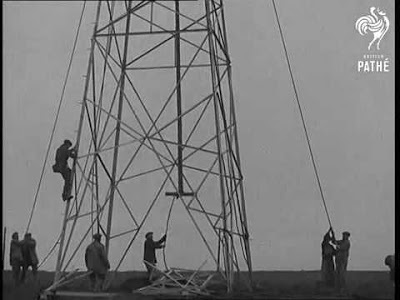
Construction of a High-Voltage Tower (1930's)
The Pylons
The secret of these hills was stone, and cottages
Of that stone made,
And crumbling roads
That turned on sudden hidden villages
Now over these small hills, they have built the concrete
That trails black wire
Pylons, those pillars
Bare like nude giant girls that have no secret.
The valley with its gilt and evening look
And the green chestnut
Of customary root,
Are mocked dry like the parched bed of a brook.
But far above and far as sight endures
Like whips of anger
With lightning's danger
There runs the quick perspective of the future.
This dwarfs our emerald country by its trek
So tall with prophecy
Dreaming of cities
Where often clouds shall lean their swan-white neck.
•
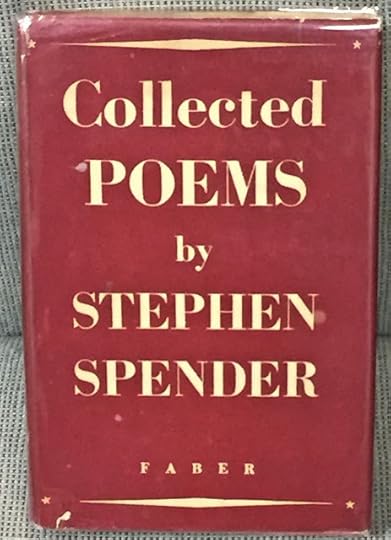
Stephen Spender: Collected Poems, 1928–1953 (1955)
Stephen Harold Spender (1909-1995)
[titles I own are marked in bold]:
Poetry:
Poems. London: Faber, 1933.Poems. 1933. Second Edition. 1934. London: Faber, 1935.Vienna (1934)The Still Centre. 1939. London: Faber, 1941.Ruins and Visions. 1942. London: Faber, 1942.Spiritual Exercises (1943)Poems of Dedication. 1947. London: Faber, 1947.Selected Poems. 1940. London: Faber, 1947.The Edge of Being (1949)Collected Poems, 1928–1953 (1955)Selected Poems (1965)The Express (1966)The Generous Days (1971)Penguin Modern Poets 20: John Heath-Stubbs / F. T. Prince / Stephen Spender. Harmondsworth: Penguin, 1972.Selected Poems (1974)Recent Poems (1978)Collected Poems 1928-1985. London: Faber, 1985.Dolphins. London: Faber, 1994.New Collected Poems. Ed. Michael Brett. London: Faber, 2004.
Plays:
Trial of a Judge: A Tragic Statement in Five Acts. 1938. London: Faber, 1945.Rasputin's End: Libretto (1958)
Translation:
Georg Büchner. Danton's Death: A Play in Four Acts. Trans. Stephen Spender & Goronwy Rees. London: Faber, 1939.Rainer Maria Rilke. Duino Elegies: The German Text, with an English Translation, Introduction and Commentary. Trans. J. B. Leishman & Stephen Spender. 1939. London: Chatto & Windus, 1981.Schiller. Mary Stuart. Trans. Stephen Spender. Preface by Peter Wood. London: Faber, 1959.Sophocles. Oedipus Trilogy: King Oedipus; Oedipus at Colonos; Antigone: A Version. Trans. Stephen Spender. 1985. New York: Random House Inc., 1985.
Fiction:
The Burning Cactus (1936)The Backward Son (1940)Engaged in Writing & The Fool and the Princess. London: Hamish Hamilton, 1958.The Temple. 1988. London: Faber, 1989.
Non-fiction:
The Destructive Element. 1935. The Life and Letters Series, 87. London: Jonathan Cape, 1938.Forward from Liberalism (1937)Life and the Poet (1942)Citizens in War – and After (1945)European Witness (1946)Poetry since 1939. The Arts in Britain, 1. 1946. London: The British Council, 1949.André Gide, Richard Wright, Ignazio Silone, Stephen Spender, Arthur Koestler, & Louis Fischer. The God That Failed. Ed. Richard Crossman. 1950. New York: Bantam Books, 1959.World within World: The Autobiography of Stephen Spender. 1951. London: Readers Union, 1953.Learning Laughter (1952)The Creative Element (1953)The Making of a Poem (1957)The Struggle of the Modern. London: Hamish Hamilton, 1963.The Year of the Young Rebels (1969)Love-Hate Relations: A Study of Anglo-American Sensibilities. London: Hamish Hamilton, 1974.Eliot (1975)The Thirties and After: Poetry, Politics, People (1933-75). London: Fontana / Collins, 1978.[with David Hockney]: China Diary. New York: Harry N. Abrams, Inc., 1982.
Edited:
Horizon (1939-41)Encounter (1953-66)Penguin Modern Poets 23: Geoffrey Grigson / Edwin Muir / Adrian Stokes. Guest Ed. Stephen Spender. Harmondsworth: Penguin, 1973.W. H. Auden: A Tribute. New York: Macmillan Publishing, 1975.
Letters & Journals:
Letters to Christopher: Stephen Spender’s Letters to Christopher Isherwood, 1929-1939, with “The Line of the Branch” – Two Thirties Journals. Ed. Lee Bartlett. Santa Barbara, CA: Black Sparrow, 1980.Journals 1939-1983. London: Faber, 1985.New Selected Journals, 1939–1995 (2012)
Secondary:
Sutherland, John. Stephen Spender: The Authorised Biography. 2004. Harmondsworth, Penguin, 2005.

Stephen Spender & George Orwell: Lansdowne Terrace
Published on April 18, 2020 13:42
April 17, 2020
In Auden's Shadow
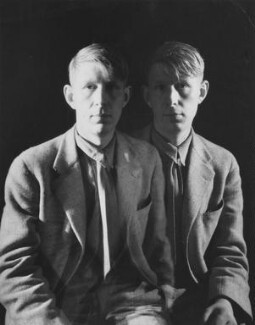
Cecil Beaton: W. H. Auden (1930)
I guess it must be pretty obvious to anyone who's ever looked at this blog just how much I've been influenced by the life and works of the late Wystan Hugh Auden. I tried to explain the obsession here, but it's quite a tall order to sum up so long a course of reading and thinking in one short post.
I first encountered his poetry at school, in the mid-1970s. I can remember the moment, in fact. I was standing in the school store-room, waiting my turn to be 'seen' by one of the teachers (I think there was some lesson in how to ace a job interview going on, but I could be wrong about that).
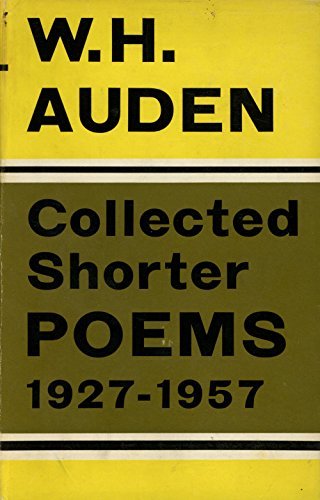
W. H. Auden: Collected Shorter Poems: 1927-1957 (1966)
I noticed a book with an exceptionally garish cover lying on the table, and picked it up to see what it was. I was already a great fan of the poetry of A. E. Housman, so the first poem I picked from the table of contents was, I think, Auden's sonnet about him:
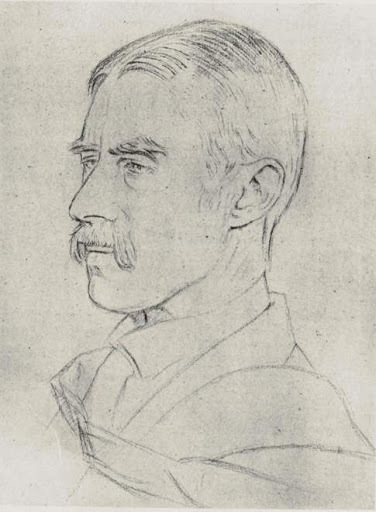
A. E. Housman (1859-1936)
No one, not even Cambridge, was to blame
(Blame if you like the human situation):
Heart-injured in North London, he became
The Latin Scholar of his generation.
Deliberately he chose the dry-as-dust,
Kept tears like dirty postcards in a drawer;
Food was his public love, his private lust
Something to do with violence and the poor.
In savage foot-notes on unjust editions
He timidly attacked the life he led,
And put the money of his feelings on
The uncritical relations of the dead,
Where only geographical divisions
Parted the coarse hanged soldier from the don.
It enraged me! How dare he speak so flippantly of so wonderful a writer! 'His private lust' indeed! How could he know? I went around fulminating about the cheek of 'modern' poets who dared to criticise their elders and betters for weeks afterward.
It enraged me - but also fascinated me. I'd had a chance to look at some of the other poems in the book and, while I didn't understand everything I was reading (still don't, for that matter), I understood enough for them to stay with me, keep nagging at me, get under my skin against my will.
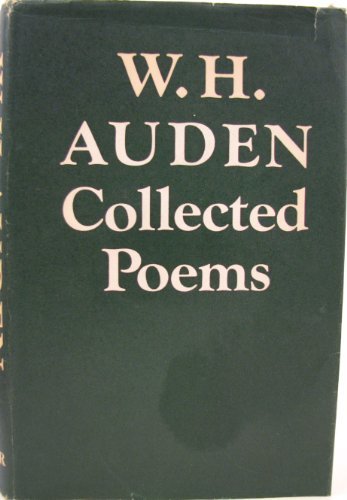
W. H. Auden: Collected Poems (1976)
My Christmas present that year (1977) was Auden's newly published Collected Poems. By then I'd got to the stage of writing a sign for my door which read:
W. H. Auden rules!
And Edward Mendelson is his prophet ...
Mendelson's editing seemed amazingly accomplished and abstruse to me at the time, especially given the maze of competing readings and revisions he had to deal with as the poet's literary executor. Auden (like Wordsworth - or, for that matter, Yeats) was one of those poets who could never leave well enough alone.
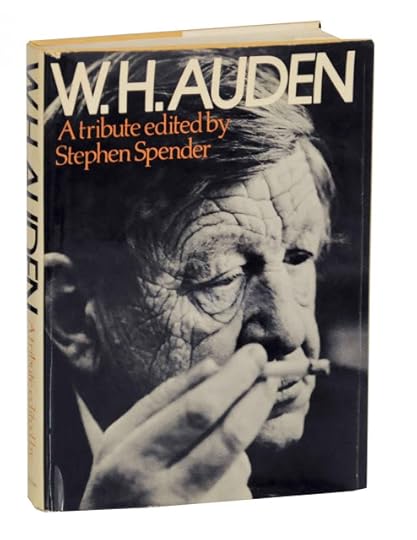
Stephen Spender, ed. W. H. Auden: A Tribute (1975)
A great deal of my interest came from the book above, however. The fascinating essays and reminiscences it contained seemed to open up a whole cornucopia of thirties imagery and lifestyles. There was a photo-montage of Night Mail (the film, and the poem Auden wrote for it), pieces by Christopher Isherwood, Stephen Spender, a host of other old friends - virtually everyone who was anyone, in fact, except for those who'd predeceased him.
And so the obsession began to spread, gradually encompassing all the other writers whose lives he'd touched, or in whose books he'd somehow been recorded. I've written elsewhere on this blog about Isherwood, who would have to rank first in that pantheon, but there were many others as well: basically all the members of the so-called Auden Group:
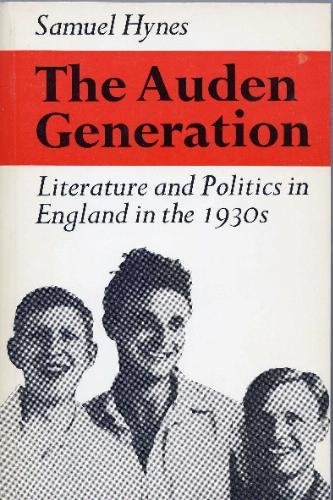
Samuel Hynes: The Auden Generation (1977)
Hence, some 45 years after "first looking into Auden's Poems", this projected series of posts about those who have ended up - fairly or unfairly - in Auden's shadow. Auden could be a dominant, some would say a domineering figure. What of those other writers and poets? What might one say about them?
There are a great many to choose from. For a start, there are the other three components of 'Macspaunday' (a derogatory epithet coined by pro-Fascist writer Roy Campbell for this set of largely left-wing poets): Louis MacNeice, Stephen Spender, W. H. Auden, and Cecil Day-Lewis = Mac / sp /aun / day - get it?
Then there are those notorious lines from Day-Lewis's long poem The Magnetic Mountain (1933), much mocked and denigrated at the time by George Orwell (who referred to Auden as 'a kind of gutless Kipling'):
Then I'll hit the trail for that promising land;"Wystan" is, of course, W. H. Auden; "Rex" is Rex Warner. Ought he, too, to go on the list, then?
May catch up with Wystan and Rex my friend ...
And then there are the editors and anthologists who promoted - some would say pushed - this literary movement at the time: Michael Roberts, whose two anthologies New Signatures (1932) and New Country (1933) constituted the first real attempt to define it; and Geoffrey Grigson, whose magazine New Verse (1933-39) existed - as he himself said - primarily to promote and print the work of Auden and his friends.
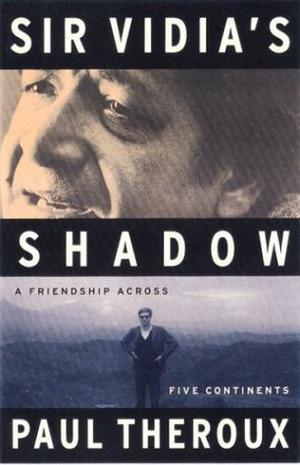
Paul Theroux: Sir Vidia's Shadow: A Friendship across Five Continents (1998)
This, then, is my list of writers left unfairly - at least arguably - in Auden's shadow (I must confess to having found some inspiration for my title in Paul Theroux's memoir of his long and difficult friendship with West Indian writer V. S. Naipaul):
Michael Roberts (1902-1948)Cecil Day-Lewis (1904-1972)Geoffrey Grigson (1905-1985)Rex Warner (1905-1986)Louis MacNeice (1907-1963)Stephen Spender (1909-1995)
I'll put up the blogposts as I finish them, in no particular order, to avoid any invidious implications of primacy or degrees of importance. The list above, however, is arranged chronologically in order of date of birth. It's important, at times, to remember that Day-Lewis was three years Auden's senior, and Spender two years his junior.
Such details generally matter little for people you encounter as an adult, but the Auden group met first at school (Isherwood and Edward Upward), then at university (Spender, MacNeice and Day-Lewis), and a certain in-built competitiveness was the inevitable result.
There are plenty of other people I could have included: Charles Madge, of Mass-Observation fame, who did after all run off with Stephen Spender's first wife, and whose unfortunate account of first reading Auden (from his 'Letter to the Intelligentsia') remains extant to haunt him:
But there waited for me in the summer morningEdward Upward the surrealist, too, was closely involved with the group. And if you count in their enemies: George Orwell, C. S. Lewis, Dylan Thomas, George Barker, the list could grow to include virtually everyone prominent in the arts in the 1930s ...
Auden fiercely. I read, shuddered and knew.
And all the world's stationary things
In silence moved to take up new positions
Let's begin with the six authors above, then. I think there are important things to be said about each of them - or if not, it isn't from lack of effort on my part in collecting their various works.
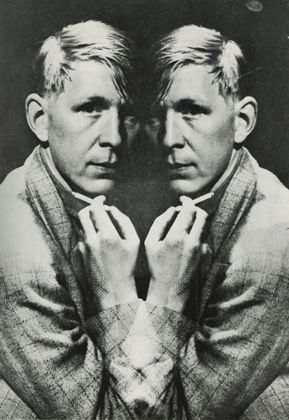
Cecil Beaton: W. H. Auden (1930)
Published on April 17, 2020 20:50
April 4, 2020
The Machine Stops
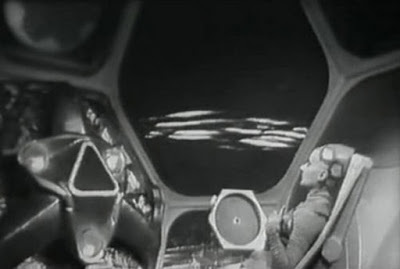
E. M. Forster: The Machine Stops (1909)
Clearly I'm not the first one to notice the extraordinary prescience shown by E. M. Forster in his long short story "The Machine Stops," first published in The Oxford and Cambridge Review in November 1909.
Forster envisages a world where people live cocooned in little cells, with audiovisual contact with one another, and minimal travel from place to place. His protagonist, Vashti, is largely content with her situation, and displays nothing but irritation at the attempts of her son, Kuno, to interest her in the forbidden regions outside.
Everything - nourishment, entertainment, contact - is supplied by the Machine, which is now the main deity worshipped by mankind, despite having been originally designed to serve them. Now, however, the machine has started to falter, to lag in its daily attentions to the human parasites that infest it.
Kuno wants his mother to accompany him outside, where he is sure that he once saw some living human beings. Her reluctance to do so spells her own doom. As the two of them die, however, they at least have the satisfaction of seeing the possibility of escape from the Machine's mechanical womb.
"But, Kuno, is it true? Are there still men on the surface of the earth? Is this - this tunnel, this poisoned darkness - really not the end?"
He replied: "I have seen them, spoken to them, loved them. They are hiding in the mist and the ferns until our civilisation stops. Today they are the Homeless - tomorrow -"
"Oh, tomorrow - some fool will start the Machine again, tomorrow."
"Never," said Kuno, "never. Humanity has learnt its lesson."
As he spoke, the whole city was broken like a honeycomb. An airship had sailed in through the vomitory into a ruined wharf. It crashed downwards, exploding as it went, rending gallery after galley with its wings of steel. For a moment they saw the nations of the dead, and, before they joined them, scraps of the untainted sky.
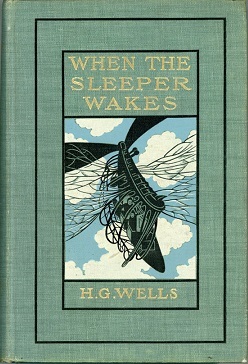
H. G. Wells: When the Sleeper Wakes (1899)
Forster himself called his story "a reaction to one of the earlier heavens of H. G. Wells" - presumably the one depicted in the latter's novel When the Sleeper Wakes (1899) - reissued, in revised form, as The Sleeper Awakes in 1912.
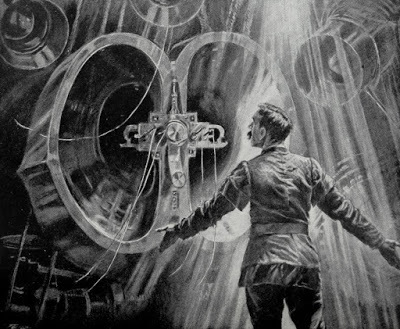
Henri Lanos: Illustration for When the Sleeper Wakes (1899)
Not that Wells's picture of the future - in this novel, at least - is a narrowly utopian one. The society his sleeper, Graham, wakes into is a profoundly troubled one. The amount of his own savings have accumulated, due to compound interest, during the long centuries of his sleep, to such an incredible total that they are now the principal economic mainstay of the world. The rest of the book examines the implications of such capitalist plutocracy as against the apparent hope provided by revolutionary socialism.
Both are found wanting in this bleak early vision by a writer later criticised for his naive acceptance of purely scientific values. Once again, if you read his books yourself rather than accepting such bland critical summaries, the actual implications of his work are far more nuanced and complex.
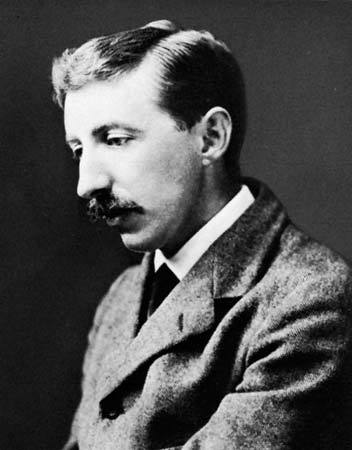
E. M. Forster (1879-1970)
Be that as it may, Wells' truths were certainly different from Forster's. In a sense they embody two contradictory world-views - based, respectively, on the private and the public life. Forster concerned himself almost exclusively with the personal values bound up in his famous adage: "Only connect." His books are all about moments of emotional epiphany and contact over seemingly unbridgeable gulfs of background and class.
W. H. Auden perhaps expressed it best in the last of his 1938 group of Sonnets from China :
XXI
(to E.M. Foster)
Though Italy and King's are far away,
And Truth a subject only bombs discuss,
Our ears unfriendly, still you speak to us,
Insisting that the inner life can pay.
As we dash down the slope of hate with gladness,
You trip us up like an unnoticed stone,
And, just when we are closeted with madness,
You interrupt us like the telephone.
Yes, we are Lucy, Turton, Philip: we
Wish international evil, are delighted
To join the jolly ranks of the benighted
Where reason is denied and love ignored,
But, as we swear our lie, Miss Avery
Comes out into the garden with a sword.
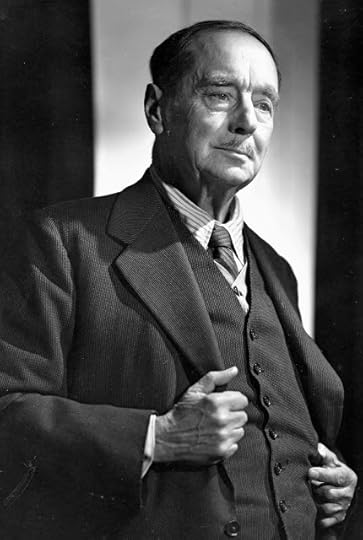
H. G. Wells (1866-1946)
Wells, by contrast, ended in a state of utter despair, as the Second World War erupted to dash into pieces all his hopes of international betterment. The title of his last book Mind at the End of Its Tether (1945) says it all.
Having said that, though, much though I enjoy Forster's fiction and essays, if it came to a choice between the two, I would go for Wells every time. Forster's Collected Short Stories (1950) is 246 pages long. Wells's Short Stories (1927) runs to over 1,000 pages, and includes such masterpieces as "The Time Machine," "A Story of the Days to Come," "A Dream of Armageddon," and dozens of others - it's one of the great books of the twentieth century.
Luckily, I don't have to choose. I can enjoy both of their different insights, and shelve them side-by-side in a propinquity I fear they could never have achieved in their lifetimes.
•

Twelve Modern Short Novels
[illustrated by B. Biro (c.1950s)]
Twelve Modern Short Novels: A Collection of the Shorter Works of Writers of Distinction from the Eighties of the Last Century to the Present Day. Decorations by B. Biro. London: Odhams Press Limited, n.d. (c. 1950s).
I see from the inside of my copy (which is light blue rather than red in colour, but is otherwise identical with that pictured above) that I purchased it on 30th September 1977. It was certainly an auspicious day for me.
You can see from the list of contents below just what a treasure-house of stories this book contains. I'd read very few of these authors previously, and it had the effect of introducing me to some of the real triumphs of late nineteenth / early twentieth-century prose.
[1887] - Oscar Wilde: "Lord Arthur Savile's Crime: A Study of Duty"
[1888] - Rudyard Kipling: "The Man Who Would Be King"
[1902] - Joseph Conrad: "Heart of Darkness"
[1911] - E. M. Forster: "The Machine Stops"
[1919] - Max Beerbohm: "Enoch Soames"
[1922] - Aldous Huxley: "The Gioconda Smile"
[1927] - Thornton Wilder: "The Bridge of San Luis Rey"
[1936] - Katherine Anne Porter: "Noon Wine"
[1936] - Graham Greene: "The Basement Room"
[1939] - Ernest Hemingway: "The Short Happy Life of Francis Macomber"
[1945] - Mary Lavin: "The Becker Wives"
[1946] - H. E. Bates: "The Cruise of 'The Breadwinner'"
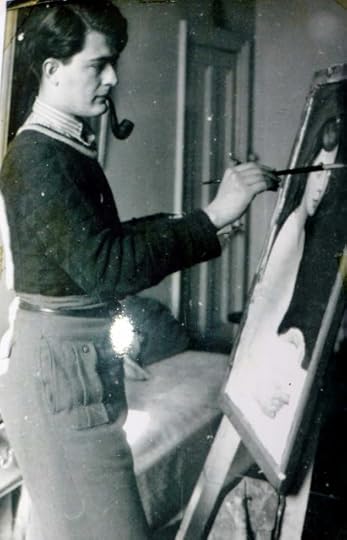
Balint Stephen ('Val') Biro (1921-2014)
No editor's name for the volume is given - only that of the illustrator, a certain 'B. Biro' (later to be known as Val Biro). He may - for all I know - have chosen the contents as well, but the contingency seems an unlikely one, given his youth at the time, and the sheer size of his graphic output: "3,000 covers in less than 40 years," as Nick Jones revealed in his "Interview with Val Biro, Artist, Illustrator, Author and Book Cover Designer" in Existential Ennui (4/8/14).
Whoever it was who selected these particular stories certainly did me a great favour, though. I suppose that I would have read the more canonical ones sooner or later, but authors such as Katharine Anne Porter and Thornton Wilder were much less familiar currency at the time.
Also, would I really have appreciated "The Machine Stops" quite so much if it hadn't been bookended between the dark profundities of "Heart of Darkness" and the bittersweet satire of Beerbohm's "Enoch Soames"?

Carol Reed & Graham Greene
"The Basement Room," too. It would be many years before I saw Carol Reed's film The Fallen Idol (1948), and then, I'm afraid, my main impulse was to exclaim that he'd got it wrong. The squalid suburban horrors of Greene's parable had somehow been transferred to the glamorous setting of an embassy.
The lessons screenwriter and director learnt from this experience must have supplied at least some of the ingredients which went into their next collaboration, the immortal Third Man (1949).
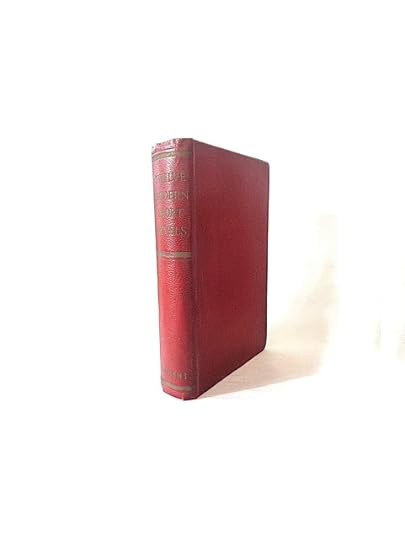
Twelve Modern Short Novels
Published on April 04, 2020 15:55
March 31, 2020
The Art of the Literary Anecdote
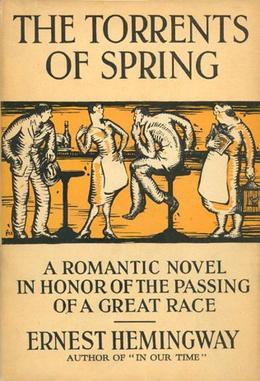
Ernest Hemingway: The Torrents of Spring (1926)
The story begins with [writer Scripps O'Neill] returning home from the library to find that his wife and small daughter have left him ... O'Neill, desperate for companionship, befriends a British waitress, Diana, at the restaurant where she works and immediately asks her to marry him.The Torrents of Spring has found few defenders. Although it is Hemingway's first extended prose work, it's been dismissed as a somewhat juvenile parody of Sherwood Anderson's Dark Laughter (1925). Leslie Fiedler is the one major exception. In his 1968 book The Return of the Vanishing American, he argued for a more generally subversive intent in this aberrant early work of Hemingway's.
Diana makes an attempt to impress her spouse by reading books from the lists of The New York Times Book Review ... But O'Neill soon leaves her ... for another waitress, Mandy, who enthralls him with her store of literary (but possibly made up) anecdotes.- Wikipedia
Be that as it may, it is rather amusing to read about Mandy's careful deployment of spicy literary anecdotes to ensnare her new man. Not to mention Diana's failure to do the same thing, despite her careful perusal of the book review pages. It does make one wonder, though, just why we seem to have such an insatiable anecdote for such stories - what precisely, in fact, an anecdote is?
I remember once overhearing a young GP (my brother) denouncing an older one (my father) for having "an exclusively anecdotal view of medicine." The older doctor, it is true to say, certainly had a story to fit every occasion, and perhaps relied on them to the exclusion of more quantifiable research results. But this form of codified experience does have its uses, too, at times.
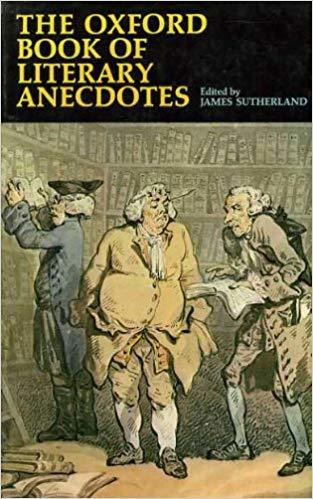
James Sutherland, ed. The Oxford Book of Literary Anecdotes (1975)
His most memorable remark of the day occurred when I asked him if he agreed with the definition that most editors are failed writers, and he replied: 'Perhaps, but so are most writers.' - Robert Giroux on his first meeting with T. S. EliotI often tell my Creative Writing students that the art of storytelling begins with the anecdote. If you can't learn how to tell one of those, then it's most unlikely that you'll be able to interest a reader in a more extended tale.
[Oxford Book of Literary Anecdotes, no. 474]
And now that we're in the process of switching all of our face-to-face teaching to distance, I've been disconcerted to find just how many of my responses to online forum posts take the form of anecdotes of the type quoted above. Is this just laziness on my part - a refusal to engage with abstractions such as 'the true nature of creativity' or 'the best way to organise your writing day'? Or is there a bit more to it than that?
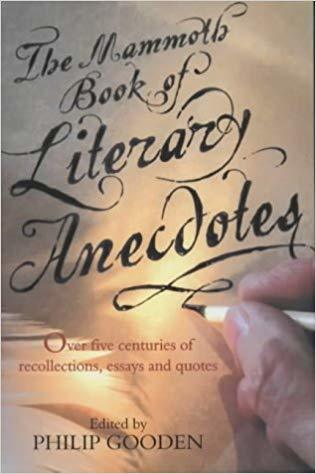
Philip Gooden, ed. The Mammoth Book of Literary Anecdotes (2002)
"In short, my good man, what I want to put to you in a word is this: supposing we have already (as I have reason to think we have) driven past the turn down to the railway station (which in that case, by the way, would probably not have been on our left hand, but the right), where are we now in relation to ....'I guess, from my point of view, the above anecdote embodies Marl Twain's writing maxim to 'eschew surplusage' more effective than earnest exhortations to that effect. It's therefore the best way I can think of to obey Emily Dickinson's instruction to "tell all the truth but tell it slant."
At this point James' companion Edith Wharton cut in impatiently, 'Oh, please, do ask him where the King's Road is.'
'Ah -? The King's Road? Just so! Quite right! Can you, as a matter of fact, my good man, tell us where, in relation to our present position, the King's Road exactly is?'
The doddery old man's reply was as short and simple as it could be. All he said was: 'Ye're in it.'- Henry James asks for directions from an elderly local
[Mammoth Book of Literary Anecdotes, p.353]
Of course it does have the effect of reducing certain writers - Samuel Johnson, Oscar Wilde, Dylan Thomas - to essentially emblematic figures. The term 'Henry James' has become shorthand for 'obscure prolixity,' rather than the genuinely enigmatic and mercurial figure he in fact was. And, yes, it certainly has a tendency to encourage the vice of name-dropping: boasting of your own acquaintance with the great in the guise of telling a funny story about them.
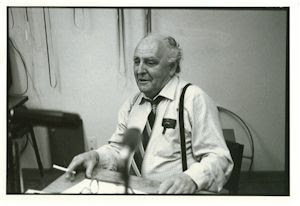
Kendrick Smithyman (1922-1995)
One writer who made a speciality of the embodied anecdote in his work was the poet Kendrick Smithyman. Kendrick was himself a marvellous anecdotalist (do I speak from personal experience? Why yes I do!) Almost all of his later poems hinge on stories of various kinds, but - as anecdotes - their 'slant' approach generally takes a fair bit of unpacking.
Take. for example, his wonderful 1971 poem "Hitching":
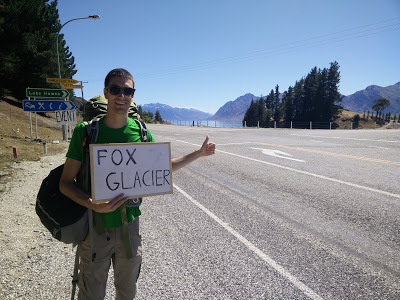
Hitchhiking
Fellow of jest!First he introduces us to the subject: the protagonist, his jester's (or would-be Yorick-like) demeanour - as well as 'the old Adam': his carnal preoccupations.
Infinite variety steps up from the scrub,
desiring to take your hands in his
to confide that he is, however priestly,
spoilt by the old Adam, by skull
aching doggedly under tanned skin.
He is pitchpine, claypatch, highcountryNext he fills in the background: the Barry Crump-like demeanour of this 'mountain man' - 'countryman of a horned god, himself horny.'
scree. Shitwood, and knotty offcut.
Clothed, like one of our mountain men
with parka, pack and cutdown .303.
Stinking, like deerhide,
countryman of a horned god, himself horny
he is warlock out to conjure
a licklipping housekeeper at one of the motels
along the highway by the Lake.
I’ll put him down this side ofFinally, after some rather more intense Smithymanian psychogeographical specifications of time, space and locale, we end with the nub of the matter: the hitcher's insistently urged theory that nature requires of woman that 'if a man / with a hard on puts the hard word / to her, she’ll come across.'
the store.
Near the stream, where trout are for tickling,
where a private sybil-mouthed pool fumes
like a woman on heat. You can’t blame them,
it’s nature (he assures me) if a man
with a hard on puts the hard word
to her, she’ll come across.
For the next mile or two, looks thoughtful.
We carry on, between folk tales.
Which would, of course, be quite a crass and unpalatable conclusion to the story were it not for that detail about how he 'For the next mile or two, looks thoughtful.' In other words, even he cannot believe his own bullshit, much though he undoubtedly wishes it was true.
And thus the two "carry on, between folk tales."

Margaret Edgcumbe: The Empty Desk (1996)
Would you call it a good yarn? There's not that much to it, really. And yet it's very revealing of character, both the mountain man's and his relentlessly observant interlocutor. Thus men do talk. Sometimes. Some of them. And just so do they look thoughtful, at times, in the midst of their confident brag.
It's an oblique and sharp-edged insight, not claiming any particular wisdom or universal applicability, but telling nevertheless. It's a way of communicating ideas without ever stating them directly. And that has been - I suppose, continues to be - its function within our society: a body of oral lore, handed down from parent to child, from mentor to apprentice, in equivocal succession.
I was brought up by an anecdotalist - saw him in action, often, with his peers and contemporaries - have his stories codified in my skull, willy-nilly, whether I like it or not. I wouldn't want to argue that New Zealand has any particular lien on the art of the anecdote, but we certainly once were an almost exclusively anecdotal culture.
Any other type of conversation was, I suppose, considered unsafe: loud expressions of political (or religious) opinion were too dangerous to venture upon in untested company - stories, by contrast, could communicate more obliquely, more deniably.
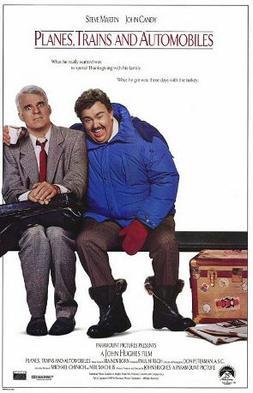
Planes Trains and Automobiles (1987)
'Not everything is an anecdote!' is the most cutting thing the uptight Steve Martin character can think of to shout at the more homespun John Candy in Planes Trains and Automobiles. Yes, there can be few things more lethal than being caught in the company of a truly insistent and ruthless storyteller.
At its best, though, in the hands of a master such as Kendrick Smithyman (or, for that matter, Ernest Hemingway) the art of the anecdote can act as a crystallised version of the art of fiction.
•
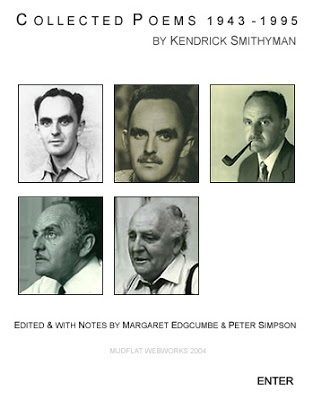
Kendrick Smithyman: Collected Poems 1943-1995 Kendrick Smithyman
ed. Peter Simpson & Margaret Edgcumbe (2004)
HITCHING
Fellow of jest!
Infinite variety steps up from the scrub,
desiring to take your hands in his
to confide that he is, however priestly,
spoilt by the old Adam, by skull
aching doggedly under tanned skin.
He is pitchpine, claypatch, highcountry
scree. Shitwood, and knotty offcut.
Clothed, like one of our mountain men
with parka, pack and cutdown .303.
Stinking, like deerhide,
countryman of a horned god, himself horny
he is warlock out to conjure
a licklipping housekeeper at one of the motels
along the highway by the Lake.
A chopper dragonflies away from a crater
where seismic survey gear is freighted
for vulcanologists intent to exorcise
preAdamite nature. Science is
so far it’s nearly out of sight,
but one gross burly cloud smokes
resistance. Otherwise, skies are clean,
farseeing
far enough for him to pick out
unbroken ponies herded by native
will, a line of descent from
guerrilla bands of the Sixties and Seventies.
With Old Testament in one hand,
millenarian carbine in the other
they shot from rock to rock extravagant
and spent like so many rounds,
not forsaking the old Adam
who cantered ahead, wives and all.
Who, like us, liked to hang on to the skirts
of Mystery. Who (they say) giving or taking
half a chance, liked to get his hand up,
countryman of a horned god,
homing on deerhide, catskin, beard of the goat?
I’ll put him down this side of
the store.
Near the stream, where trout are for tickling,
where a private sybil-mouthed pool fumes
like a woman on heat. You can’t blame them,
it’s nature (he assures me) if a man
with a hard on puts the hard word
to her, she’ll come across.
For the next mile or two, looks thoughtful.
We carry on, between folk tales.
12. 10. 71
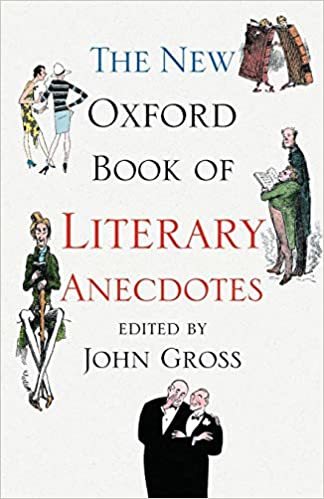
John Gross, ed. The New Oxford Book of Literary Anecdotes (2006)
Published on March 31, 2020 14:49
March 29, 2020
Top Ten Pandemic Classics
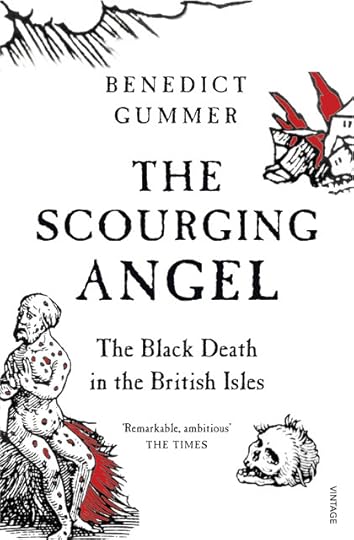
Benedict Gummer: The Scourging Angel: The Black Death in the British Isles (2010)
It's just very hard to think about anything else at the moment. New Zealand went into full COVID-19 lockdown on Wednesday night (25th March 2020, for the history books), and everyone immediately started broadcasting their impressions of the event, starting new blogs to record their daily thoughts, and (so we're reliably informed) working on their long-deferred novels.
There's nothing very original about this list, then, but it does include the main 'plague' books I've read and been impressed by over the last few years. It's bound to be a burgeoning genre over the next wee while, and it's generally a good idea to go back to your roots before launching your own raid on the inarticulate.
The fact is, epidemics are generally quite boring to read about. Once you've got past detailing the symptoms and totting up the ever-mounting grim statistics of dead and dying, you really have to do something quite original with your narrative to make it at all memorable. Each of the books below have succeeded in doing that, I think.
Giovanni Boccaccio: Il Decameron (1353)Albert Camus: La Peste (1947)Daniel Defoe: A Journal of the Plague Year (1722)Shelby Foote: 1918 (1985)Stephen King: The Stand (1978 / 1990)William Rosen: Justinian's Flea: Plague, Empire, and the Birth of Europe (2006)Randy Shilts: And the Band Played On: Politics, People and the AIDS Epidemic (1987)Thucydides: The Peloponnesian War - Book 2: The Plague of Athens (430-426 BCE)Barbara Tuchman: A Distant Mirror: The Calamitous 14th Century (1978)Philip Ziegler: The Black Death (1969)
Of course it's rather difficult to define just what precisely a pandemic classic is. If it were simply a matter of writing about confinement and hardship - as in a siege (often accompanied by disease, after all) - I would go immediately to Lidiya Ginzburg's magisterial account of the 1,000-day siege of Leningrad during the Second World War:
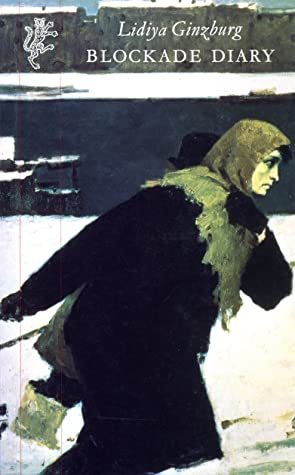
Lidiya Ginzburg: Blockade Diary (1984)
Lidiya Ginzburg. Blockade Diary. 1984. Trans. Alan Myers. Introduction by Aleksandr Kushner. London: The Harvill Press, 1995.
I have, in any case, written about this book before. A long time ago I put together a couple of imaginary online courses intended to serve as background for a novella in my 2010 collection Kingdom of Alt. The second of these was called "Crisis Diaries," and still subsists on the internet somewhere. It includes a range of diaries kept under the stress of various crises, including siege, plague, civil war, addiction and other forms of personal and political turmoil.
I suppose, then, that I define a pandemic text by virtue of its focus on the nature and progress of a disease of some sort. Otherwise, I should certainly have included Cecil Woodham-Smith's terrifying book on the Irish potato famine of the 1840s:
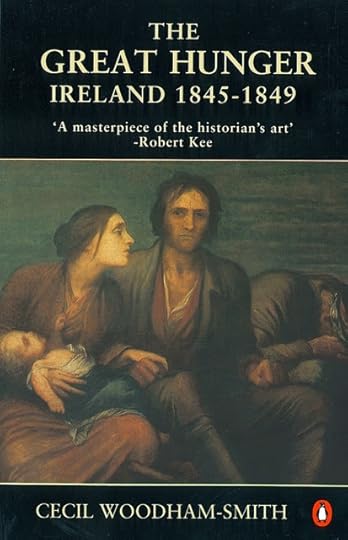
Cecil Woodham-Smith: The Great Hunger: Ireland 1845-1849 (1962)
Cecil Woodham-Smith. The Great Hunger: Ireland 1845-9. 1962. London: Readers Union Ltd. (Hamish Hamilton), 1962.
The potato blight was a disease, mind you - just not one that affected humans directly. Perhaps another way of saying it, then, would be to link the texts to one of the great pandemics of history:
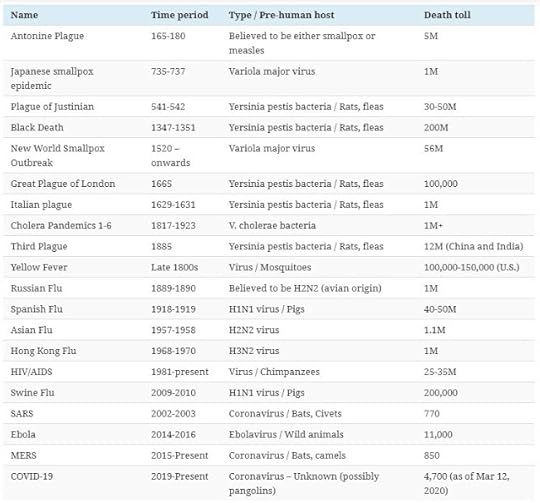
World Economic Forum: A Visual History of Pandemics
That's what I've tried to do, then - though of course the result remains very subjective and undoubtedly excludes large numbers of excellent texts which I happen not to have come across or read as yet.
•
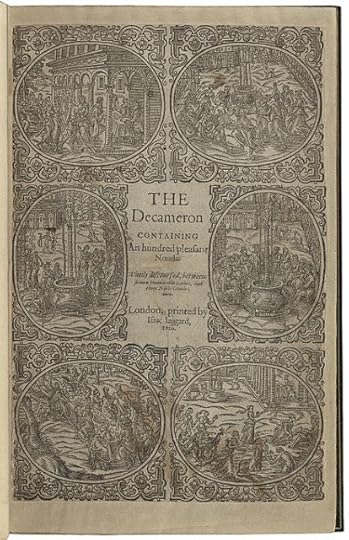
Giovanni Boccaccio: The Decameron (1353)
Giovanni Boccaccio. Il Decameron. 1350-53. Ed. Carlo Salinari. 1963. 2 vols. Universale Laterza, 26-27. 1966. Torino: Editori Laterza, 1975.
This seems like an excellent place to start. It's often forgotten that the motivation for the ten days of collective storytelling that constitute Boccaccio's Decameron is the need for various noblemen and women to isolate themselves from the Black Death, at that point rampaging through Florence.
Seen this way, there's a certain cruel frivolity about these stories of love, lust, cuckoldry and other subjects dear to the human heart. Pasolini's 1971 film does a good job of bringing out these ironies, and subverting their apparent 'joyousness' with some sense of the unpleasant realities their tellers are working so hard to conceal.
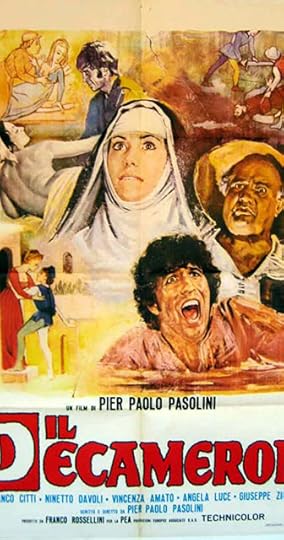
Pier Paolo Pasolini, dir.: The Decameron (1971)
•
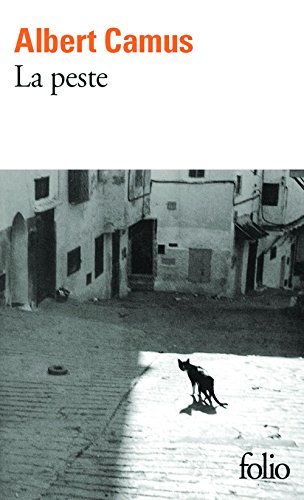
Albert Camus: La peste (1947)
Albert Camus. La Peste. 1947. Ed. W. J. Strachan. 1959. Methuen’s Twentieth Century Texts. London: Methuen and Co. Ltd., 1965.
This is the great-grandaddy of all 'Plague' narratives. I reread it recently - last year, in fact - before any of the COVID-19 events were even in prospect. It was a little more ponderous than I remembered it, though of course my command of French may have deteriorated since then.
In any case, it remains as telling now as it ever was. I have to confess that I didn't realise, when I first read it as a teenager, how closely it was based on real events. Now I see that as a strength - its allegory of moral degradation and human torpor when faced by genuinely challenging events remains as true as ever. And it's no longer necessary to read it solely as an allegory of the Second World War.
The plague seems as present to us now as the war was for its first readers in 1947.
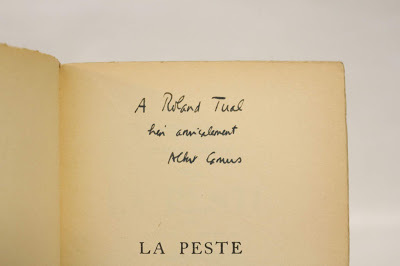
Albert Camus: La Peste (1947)
•
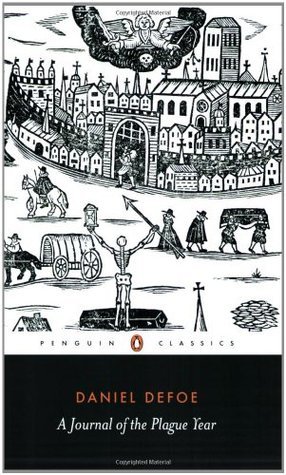
Daniel Defoe: A Journal of the Plague Year (1722)
Daniel Defoe. A Journal of the Plague Year: Being Observations or Memorials of the Most Remarkable Occurrences, as well Public as Private, which Happened in London during the Last Great Visitation in 1665. Written by a Citizen who Continued all the while in London. Never made Public Before. 1722. Ed. Anthony Burgess & Christopher Bristow. Introduction by Anthony Burgess. 1966. Penguin English Library. Harmondsworth: Penguin, 1978.
But then again, perhaps I'm wrong. Maybe this is the quintessential plague narrative against all others must be measured. It was, apparently, Elizabeth Bishop's favourite book, and there's something about the cool precision of her own writing which does remind one of Defoe's marvellously offhand and deadpan account of the horrors of one of London's many plague years - which seems to have been literally burned out of the city by the Great Fire of London.
Things are rarely that simple, though. It came back, as plagues are wont to do, but never with quite the same virulence as during this first major outbreak.
For a long time it was thought to be a genuine eye-witness account, but - while Defoe definitely collected a large number of such stories from his older contemporaries - he was five at the time, so is unlikely to have had many experiences of his own to contribute.
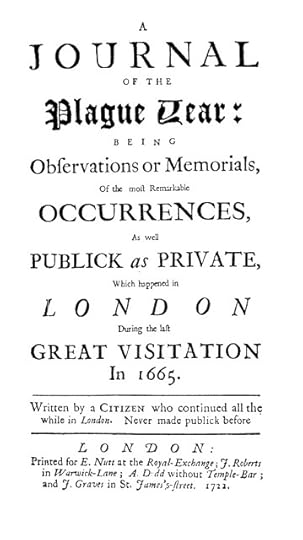
Daniel Defoe: A Journal of the Plague Year (1722)
•
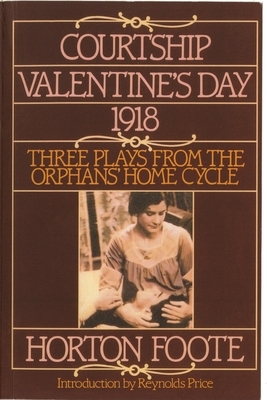
Horton Foote: Three Plays from the Orphans' Home Cycle: Courtship / Valentine's Day / 1918 (1987)
Horton Foote: Three Plays from the Orphans' Home Cycle: Courtship / Valentine's Day / 1918. 1987. New York: Grove Press, 1994.
It's hard to find good accounts of the 1918 influenza epidemic. This rather subdued play chronicling the progress of the epidemic in a small town in the USA started life as a 1985 film, but can now be read in its proper place as part of Horton Foote's immense chronicle of Southern life in the early twentieth century.
Foote, probably best known for his original screenplay Tender Mercies (1983) and the teleplay The Trip to Bountiful (1953), has a tendency to stress the uneventful. It could be argued that this is the best tone to take when writing about this cruellest of epidemics, spreading like wildfire both among returning servicemen and the families that awaited them.
There's a story that Guillaume Apollinaire, lying sick of the 'flu in a Paris hospital in 1918, heard the crowds outside chanting "À bas Guillaume" [Down with William]. They were of course referring to Kaiser Wilhelm, who'd just been forced to abdicate, but the poet took it personally. He died shortly afterwards, so this rather mordant bon mot is one of the last things recorded about him and his extraordinary life.
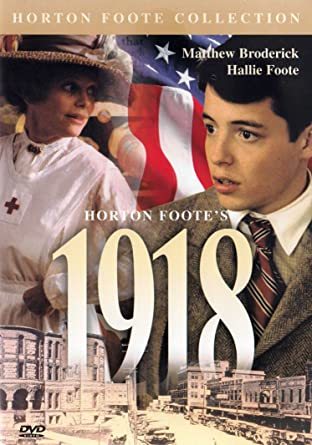
Horton Foote: 1918 (1985)
•
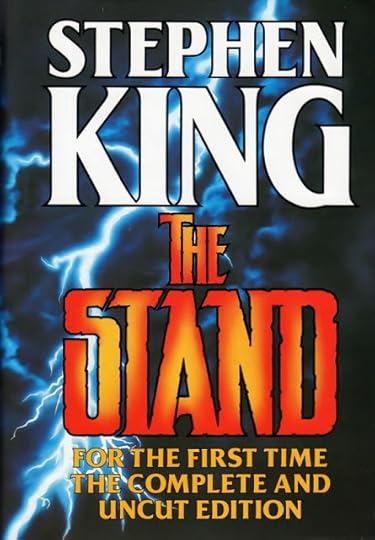
Stephen King: The Stand (1990)
Stephen King. The Stand: The Complete and Uncut Edition. London: Hodder & Stoughton, 1990.
Did Stephen King predict it all? Well, it's true that his 1978 novel The Stand (reissued in a revised and greatly expanded form in 1990) does imagine most of the population of the earth being wiped out by an aberrant strain of the 'flu to which only a very few turn out to be immune.
After that, however, things become distinctly more apocalyptic - which may be disappointing to genuine epidemophiles (if that's a real word ...) It's certainly among his most memorable works, and might arguably be the finest of all.
We're promised a new filmed version soon to replace the rather disappointing 1994 TV miniseries. Whether it can be adequately filmed remains to be seen, especially given the recent debacle of the intensely disappointing Dark Tower movie.
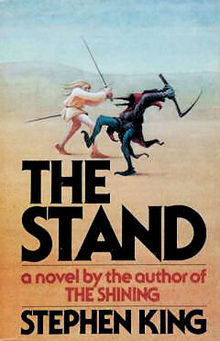
Stephen King: The Stand (1978)
•
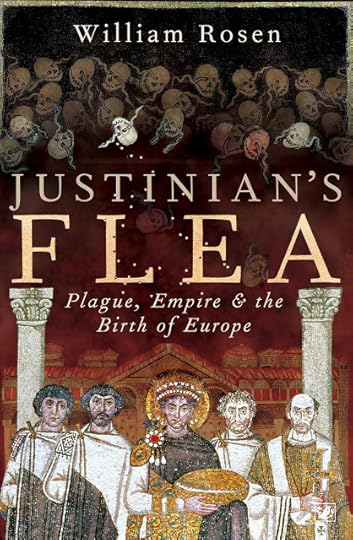
William Rosen: Justinian's Flea: Plague, Empire, and the Birth of Europe (2006)
William Rosen. Justinian’s Flea: Plague, Empire and The Birth of Europe. 2006. London: Pimlico, 2008.
This is a truly fascinating book, which attempts to plot the progress of the Byzantine emperor Justinian's Mediterranean campaigns alongside the parallel conquests of the Bubonic plague bacillus.
That might sound a little gimmicky, but the author's decision to try to compare epidemiology with social and military history results in a intriguing mixture of the familiar and the arcane which is guaranteed to inform virtually any reader, no matter how specialised he or she may be.
The accounts of the plague itself are horrific beyond measure, and give considerable backing to the author's contention that it may have been vitally instrumental both in the spread of Islam and the subsequent growth of the nation states of Europe.
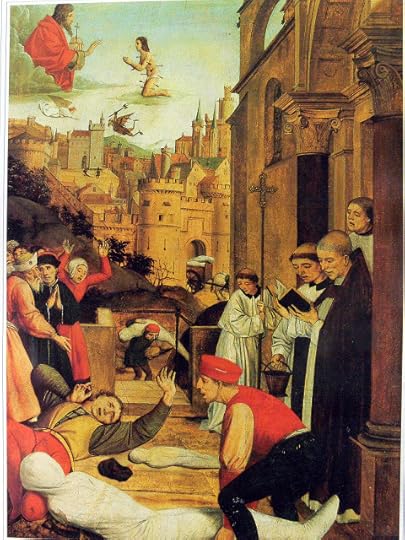
Josse Lieferinxe: St. Sebastian Pleads for the Life of a Gravedigger (1497-99)
•
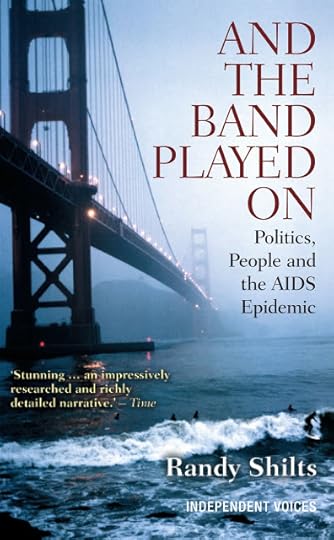
Randy Shilts: And the Band Played On (1987)
Randy Shilts. And the Band Played On: Politics, People and the AIDS Epidemic. 1987. Harmondsworth: Penguin, 1988.
If you've seen the film, you know the story - how the inertia of governments, societal prejudice against homosexual lifestyles, and jealousy among scientists combined to delay any concerted response against the AIDS virus until it was far too late to prevent its spread.
It's very much worth reading the book, though, even if you think you know what happened. It's too early to say as yet, but there are some indications - as in the article here - that some of the same processes may be playing a part this time round, again.
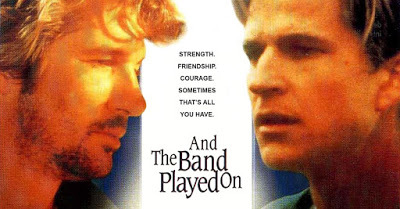
Roger Spottiswoode, dir.: And the Band Played On (1993)
•
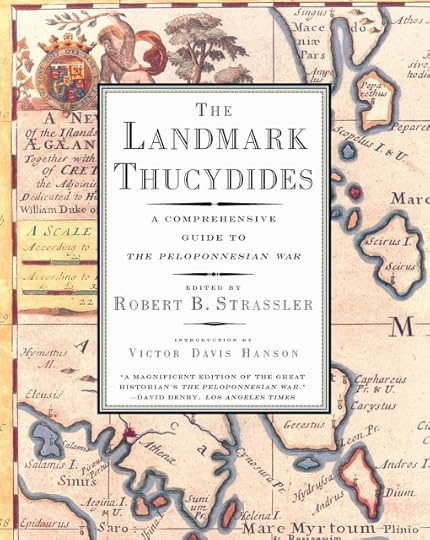
Robert B. Strassler, ed.: The Landmark Thucydides (1996)
Robert B. Strassler, ed. The Landmark Thucydides: A Comprehensive Guide to The Peloponnesian War. Trans. Richard Crawley. 1874. Introduction by Victor Davis Hanson. 1996. Free Press. New York: Simon & Schuster, Inc., 2008.
Thucydides' account, in Book II of his grim history of the follies and hubris of Athens in its twenty-year war with Sparta, of the plague that afflicted his native city in the second year of the conflict, remains an indispensable source on the effects of such outbreaks in the pre-scientific era.
Thucydides employs his customary understatement when chronicling the effects of the illness, which unfortunately means that he failed to provide enough detail for a final identification of the pathogen to be confirmed.
It was generally regarded, until recently, to have been the earliest recorded outbreak of bubonic plague, but more recent suggestions include typhus, smallpox, measles, and toxic shock syndrome.
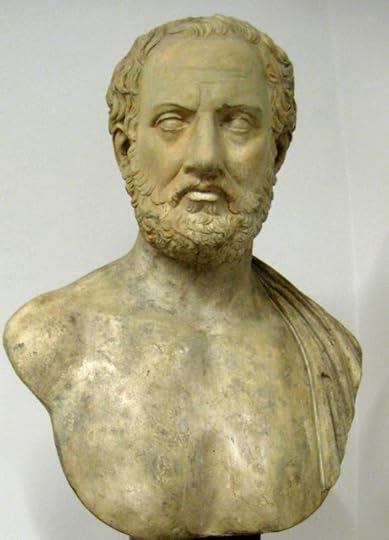
Thucydides (c.460-400 BCE)
•
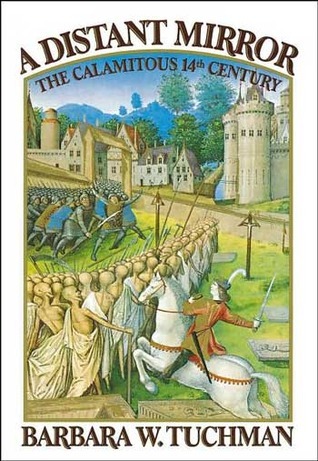
Barbara W. Tuchman: A Distant Mirror: The Calamitous 14th Century (1978)
Barbara W. Tuchman. A Distant Mirror: The Calamitous 14th Century. 1978. Harmondsworth: Penguin, 1980.
JFK's favourite historian, Barbara Tuchman, developed a huge reputation as a sage due to the fact that the former is reliably claimed to have used the latter's Pulitzer-prize winning book about 1914, The Guns of August, as a guide to his conduct during the Cuban Missile Crisis.
Some of her later titles - such as The March of Folly (1984), a study of political and military incompetence throughout history - may have suffered from an excess of ideology and editorialising, but A Distant Mirror (1978) still has its fans, myself among them.
Certainly it's an ambitious project - to parallel the tumultuous events of the twentieth century with those of the distant fourteenth - but the result is certainly intriguing. I wouldn't say that it succeeds in convincing me of the validity of the comparison, but it does give a very interesting picture of those times, dominated - in Western Europe at least - by the twin scourges of the Black Death and the Hundred Years War.
With these few provisos, it's a book I would highly recommend. Mind you, the title 'popular' or 'narrative' historian to me seems more of a badge of honour than a pretext for academic sneering - other, more professional readers may be less convinced.
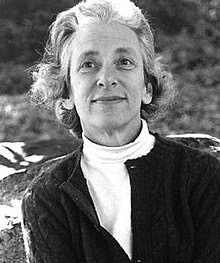
Barbara Tuchman (1912-1989)
•
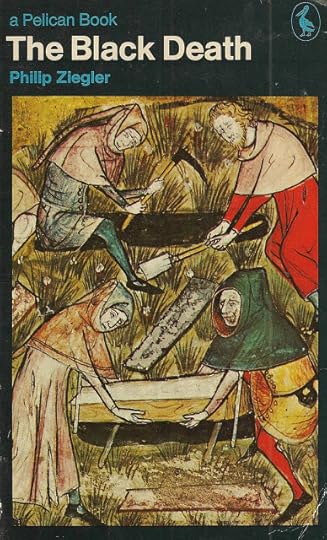
Philip Ziegler: The Black Death (1969)
Philip Ziegler. The Black Death. 1969. A Pelican Book. Harmondsworth: Penguin, 1970.
I'm sure that many histories of the Black Death have been published since this one by Philip Ziegler. He displays a touching faith in the medical science of his time, and its decoding of the basic facts of the epidemic. The more recent Benedict Gummer book pictured at the top of this post calls that and many other aspects of his narrative into question.
Despite all that, there's a certain directness and lack of pretension about Ziegler's writing which makes it still well worth reading after 50 years.
Mind you, any real study of the epidemic would have to take into account the large amount of revisionist scholarship which has appeared since then, but you have to start somewhere, and Ziegler seems a very good place to begin.
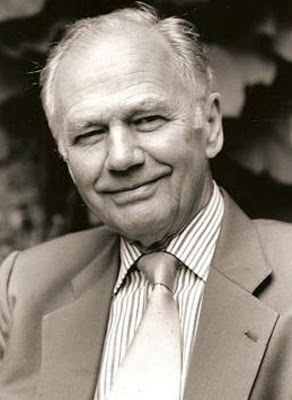
United Agents: Philip Ziegler
•
So there you go. Those are the main exhibits in my list, anyway. Feel free, if you wish, to add any suggestions of your own. I'd rather think of this post as a pretext for conversation than as any kind of last word on the subject.

World Economic Forum: A Visual History of Pandemics
Published on March 29, 2020 13:30
March 14, 2020
Christchurch Mosque Attack - First Anniversary

Jacinda Ardern projected on the Burj Khalifa (24 March 2019)
Christchurch, 15th March 2019
Du mußt dein Leben ändern
– Rainer Maria Rilke
Do we have to feel that pixilated head
burning behind our eyes?the media
keep broadcasting a manacled muscular
torso signalling triumph over the dead
his fingers cocked to a smirkthe score
perhapsJacinda Ardern’s face
caught in a rictus of grief
can’t quite displace
the bluntness of his semaphore
on this darkest of days it feels like our worst fears
were always justifiedour impotence
out in the open for all to seeour pain
trumped by the old familiar reptile brain
but scrolling down those flowers those faces those tears
I can’t see them as nothingaren’t they us?
[19/3/19]
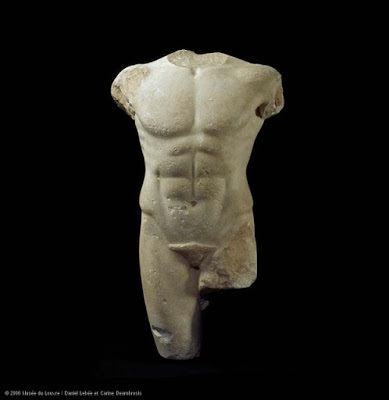
Louvre: Louvre: Male Torso (4th-5th century BCE)
I thought that now might be the time to post this poem I wrote shortly after the terrible mosque shootings in Christchurch, exactly one year ago today. In form it's a very loose adaptation of Rainer Maria Rilke's great sonnet about Apollo. Something about that picture of the suspect in the dock reminded me of the statue Rilke was referring to - but in a very different way ...
Archaïscher Torso Apollos
Archaic Torso of Apollo
Wir kannten nicht sein unerhörtes Haupt,
We never knew his unheard-of head
darin die Augenäpfel reiften. Aber
where the eyeballs ripened. But
sein Torso glüht noch wie ein Kandelaber,
his torso still glows like a candelabra
in dem sein Schauen, nur zurückgeschraubt,
in which his gaze, only half-illuminated
sich hält und glänzt. Sonst könnte nicht der Bug
holds and dazzles. Otherwise the bow
der Brust dich blenden, und im leisen Drehen
of the breast wouldn’t join in, and the light twist
der Lenden könnte nicht ein Lächeln gehen
of the loins couldn’t lend a smile
zu jener Mitte, die die Zeugung trug.
to that centre, which holds fertility.
Sonst stünde dieser Stein enstellt und kurz
Otherwise this stone would be shut and cut short
unter der Shultern durchsichtigem Sturz
under the shoulders’ transparent fall
und flimmerte nicht so wie Raubtierfelle;
and would not flicker like a predator’s skin;
und brächte nicht aus allen seinen Rändern
and would not burst out on all sides
aus wie ein Stern: denn da ist keine Stelle,
like a star: since there’s no part
die dich nicht sieht. Du mußt dein Leben ändern.
which doesn’t see you. You must change your life.
For more translations of Rilke's poem, you can check out the multiple versions collected here.
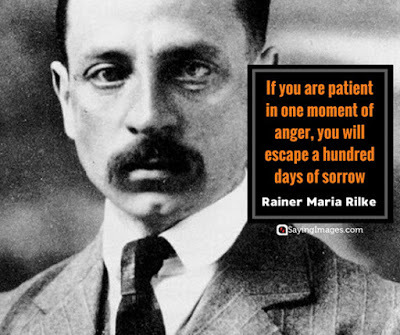
Rainer Maria Rilke (1875-1926)
Published on March 14, 2020 12:41
March 9, 2020
New Managing Editor for Poetry New Zealand
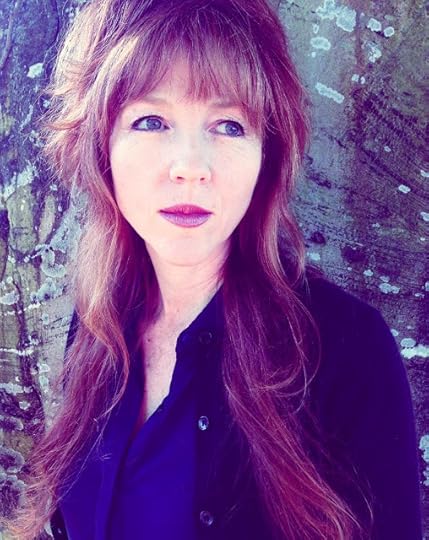
Tracey Slaughter
I'm delighted to announce that an agreement has been reached between Dr Tracey Slaughter, Senior Lecturer in Creative Writing at Waikato University; Dr Jack Ross (me), the present managing editor of Poetry New Zealand ; and Nicola Legat, head of Massey University Press, our publisher, for the future housing of the journal in the School of Arts at Waikato.
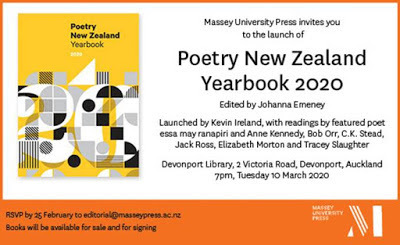
The formal announcement will be made at the launch of the latest issue, Poetry New Zealand Yearbook 2020 , MC'ed by our distinguished guest editor Dr Johanna Emeney, in Devonport Public Library this evening.
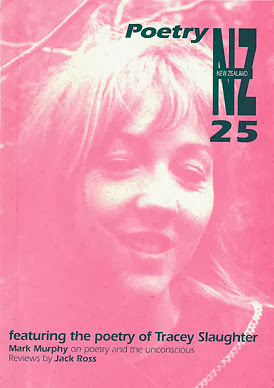
Alistair Paterson, ed.: Poetry NZ 25 (September 2002)
What can I say about Tracey Slaughter? She was featured in Poetry NZ 25 in 2002, and has been a passionate supporter of the journal ever since. She is still, perhaps, better known as a fiction writer than a poet, but the publication last year of her first stand-alone collection, Conventional Weapons, by Victoria University Press, made it clear how dedicated she remains to poetry as an essential part of her writing life.
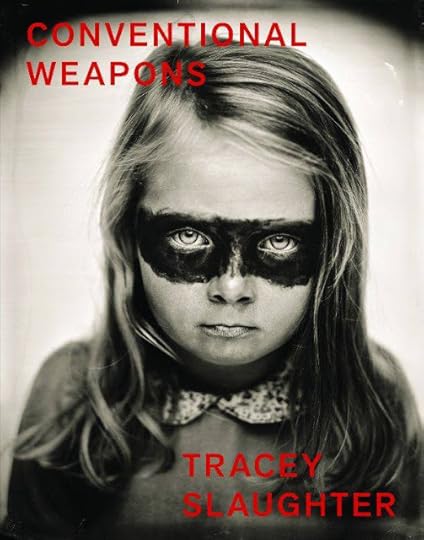
Tracey Slaughter: Conventional Weapons (2019)
Tracey is no stranger to the challenges of running a magazine, either. She co-founded the Waikato University literary journal Mayhem in 2014, and has been editing it - with an intrepid team of collaborators including Dave Taylor, Aimee-Jane Anderson-O'Connor, essa may ranapiri, and Melody Wilkinson - ever since.
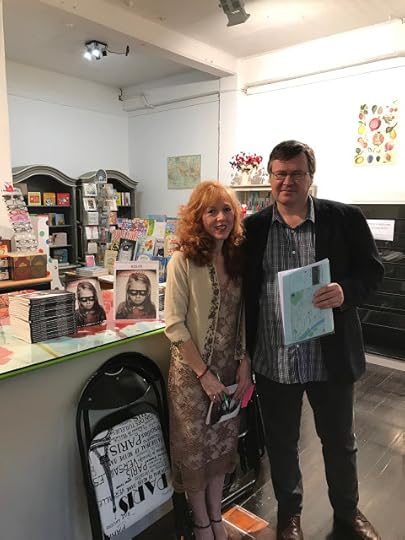
Bronwyn Lloyd: Tracey & Jack (9/5/19)
I couldn't wish for a better successor as Managing Editor of Poetry New Zealand than my good friend Tracey. I will, however, be staying on for the present as part of the advisory board for the journal, along with , Prof Michele Leggott, Alistair Paterson ONZM, and Prof Bryan Walpert.

Bronwyn Lloyd: Tracey & Kathy (2020)
For further details of how to submit work to the magazine, you can continue to check the Poetry NZ website. The only difference is that the email address editor@poetrynz.net will now redirect to Tracey rather than to me, and the postal address for any snailmail correspondence will now be:
Dr Tracey Slaughter
English Programme
School of Arts
Waikato University
Private Bag 3105
Hamilton 3240
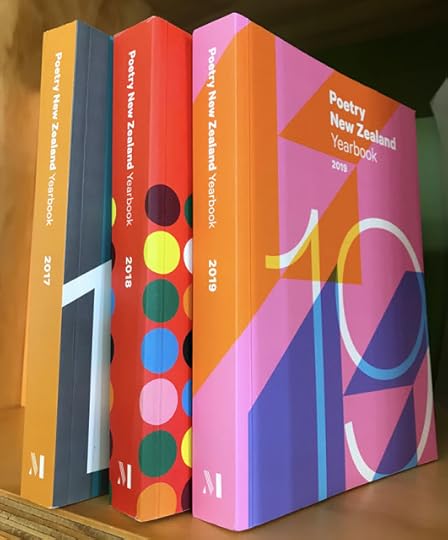
Jack Ross, ed.: Poetry NZ Yearbook 2017 / 2018 / 2019
[Design by Jo Bailey]
Published on March 09, 2020 18:43
March 6, 2020
The Worst Novel Ever?
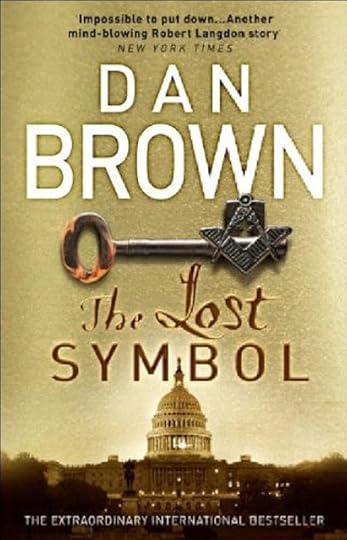
Dan Brown: The Lost Symbol (2009)
Recently I've been entertaining myself by rereading a few of the masterworks of Dan Brown: Angels and Demons (2000), The Da Vinci Code (2003), and (for the very first time) The Lost Symbol , which I found in a Hospice Shop the other day.
I was, however, intrigued to see, on the wikipedia page devoted to the novel, the fact that "Slovene philosopher and cultural critic Slavoj Žižek [has] described the book as 'a candidate for the worst novel ever'."
The worst novel ever ... Really? I mean, even by Dan Brown's standards, it's pretty bad - a tired rehash of all the same characters and situations as its two rather livelier predecessors. It's so bad, in fact, that it drove me online to see if it was just me, or if other readers had noticed a certain lack of the old pizzazz in Brown's barking dog of a novel. Boy, did they!
The New York Times critic, while stressing the basic readability of the book, went on to liken the character Inoue Sato to Jar Jar Binks in the Star Wars prequels. Ouch! Other reviewers called it "contrived," "a heavy-handed, clumsy thriller,' "filled with cliché, bombast, undigested research and pseudo-intellectual codswallop," and, finally, "a novel that asks nothing of the reader, and gives the reader nothing back."
Yes, true, all true, and (after all) even the author must have known that it was not his best work. It took so much longer than its predecessors, to start with - with the publication date repeatedly put back - and anyone could be forgiven for suffering a bit of performance anxiety after the disproportionate success of the Da Vinci Code, both as a book and as a movie.
In any case, whether it's good or bad, it was also "the fastest selling adult-market novel in history, with over one million copies sold on the first day of release" - so Brown might well feel justified in riposting something to the effect of yar boo sux Slavoj Žižek: give me a buzz when one of your books does the same thing.
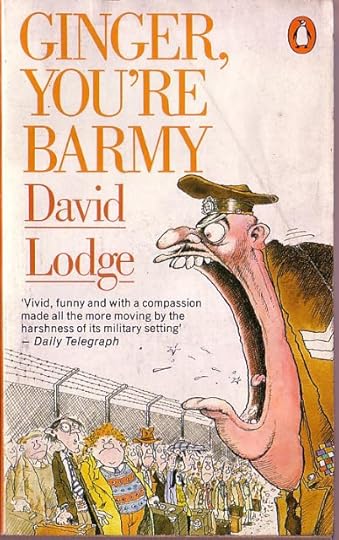
David Lodge: Ginger, You're Barmy (1962)
I did feel a certain sense of déjà vu about the whole controversy, though. I remember having precisely the same discussion about what actually was the worst novel ever written with a classmate at graduate school in the 1980s. She told me that she had in fact stumbled upon it quite recently - it was by David Lodge, and it was called Ginger, You're Barmy, a thinly disguised autobiographical account of his time in the army under national service.
The reason that this sticks in my mind with such vividness, some thirty years later, is (first) because I had in fact read this particular David Lodge novel. And that - by some outrageous coincidence - my own candidate for worst novel ever written was another book by the very same author! I ask you, what are the chances of that?
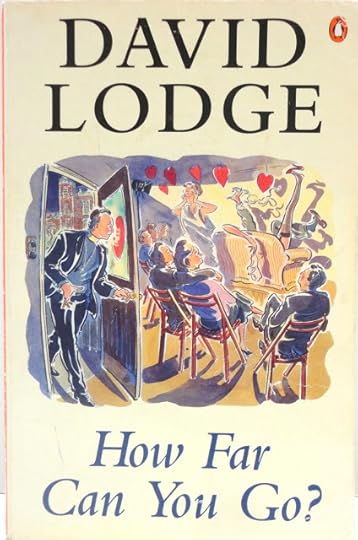
David Lodge: How Far Can You Go? (1980)
How Far Can You Go? is a kind of social novel exploring the pointless non-dilemma of how far a bunch of Catholic characters can go in terms of adultery and general naughtiness without forfeiting their right to feel morally smug and satisfactorily insured against hellfire. I suppose it's meant to be a comic novel, really, but it's hard to imagine anyone laughing or even smiling at any of the lacklustre situations his unmemorable characters manage to get themselves in. Compared to that, as I maintained to Claire at the time, Ginger, You're Barmy qualifies as quite a lively read.
She remained unconvinced. Nothing, she said, could be as bad as Ginger, You're Barmy. The surprising thing was that the very paper it was printed on could bear to maintain those words and sentences in perpetuity - that copies of the book did not spontaneously combust out of sheer self-disgust ... (We may have had a certain collective tendency towards hyperbole in those days).
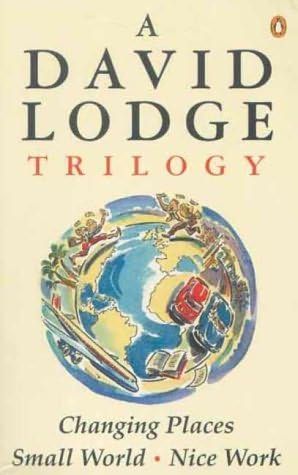
A David Lodge Trilogy
The funny thing is, I quite enjoyed some of David Lodge's other books - his trilogy of campus comedies, Changing Places (1975), Small World (1984), and Nice Work (1988) was rchly amusing, I thought - and I've found some of his essays on literary theory extremely clear and useful at critical moments in my own 'academic career' (if you want to call it that).
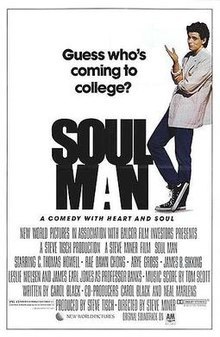
Soul Man (1986)
I know that we've all indulged in those conversations where you sit around listing the worst movies ever made - my own personal pick, after all these years, remains the tasteless blackface comedy Soul Man (1986), whereas Bronwyn steadfastly maintains the counter-demerits of Brown Bunny (2003) - but the quest for the worst novel ever written should have somewhat stricter rules, I feel.
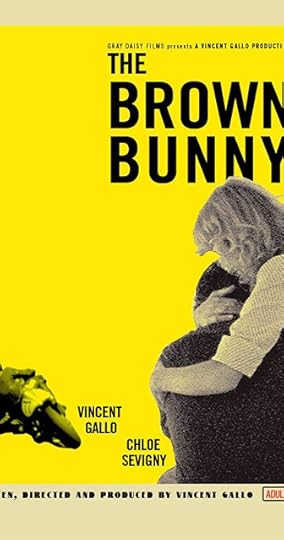
The Brown Bunny (2003)
First of all, there's no point in lambasting bad novels by obscure nobodies. Where's the fun in that? It's just cruel and spiteful.
Nor is it fair to choose a novel which you didn't succeed in reading to the end - what if it picks up in the last thirty pages?
Nor is it sporting (I believe) to choose an author whose work you find uniformly distasteful. Why bother to select a particularly poor novel by Dean Koontz or Jeffrey Archer, for instance - are there any good ones?
These, then, must be the rules of the competition:
You can't pick a novel by an author you entirely despiseYou can't pick a novel you didn't manage to finishThere's no point in selecting something completely obscure
Let the games begin - and may be the odds always be in your favour!
I have to say, in conclusion, that I doubt severely that Žižek would be able to find merit in any of Dan Brown's books, which objection - if maintained by the stewards - would constitute a fatal obstacle to his otherwise quite compelling choice of The Lost Symbol as the worst novel ever written.
However, since Bronwyn and I both enjoyed reading my old classmate Mark Haddon's book (2003), I think that that validates her selection of his more recent The Red House as her own candidate for worst novel ever written.
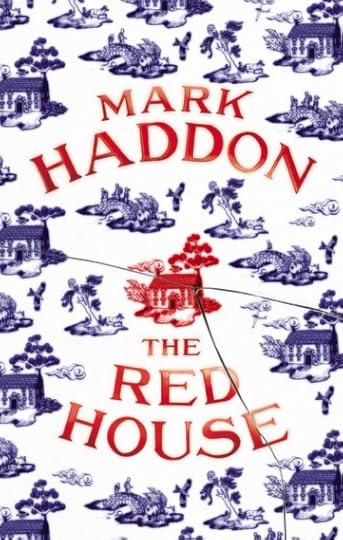
Mark Haddon: The Red House (2012)
Ever since I started writing them myself, I guess I've been a bit more chary of parlour games such as this. There is, however, no accounting for tastes, and it can come as a shock that something you mildly enjoyed yourself can be right up there on someone else's hitlist. A lukewarm response is the worst fate any book can receive, in any case, so I don't think being on a list of world's worst novels is likely to do lasting harm to any of the books (or authors) mentioned above.
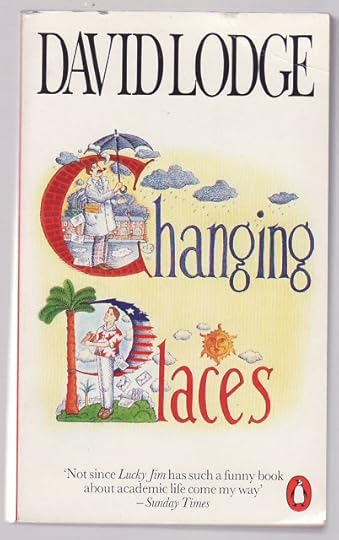
David Lodge: Changing Places (1975)
It does put me a little in mind, though, of that wonderful game "humiliation" described in David Lodge's campus comedy Changing Places:
The essence of the matter is that each person names a book which he hasn’t read but assumes the others have read, and scores a point for every person who has read it.Since all Academics feel secretly guilty about not having ever read works that they are generally expected to be familiar with (Paradise Lost, Middlemarch - you know the kind of thing), this is a great chance to come clean. But you can only win by exposing your own ignorance. There's no point in naming anything extra difficult and pretentious, since no-one else present is likely to have read it either, and you won't get any points.
In the novel, the game is won by a Drama Professor who admits to having never read Hamlet. The sequel, however, is not quite so risible:
Howard Ringbaum unexpectedly flunked his review three days later and it’s generally supposed that this was because the English Department dared not give tenure to a man who publicly admitted to not having read Hamlet.
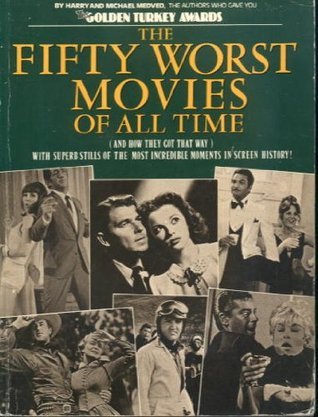
Harry Medved & Randy Dreyfuss: The Fifty Worst Movies of All Time (1978)
Published on March 06, 2020 13:14

